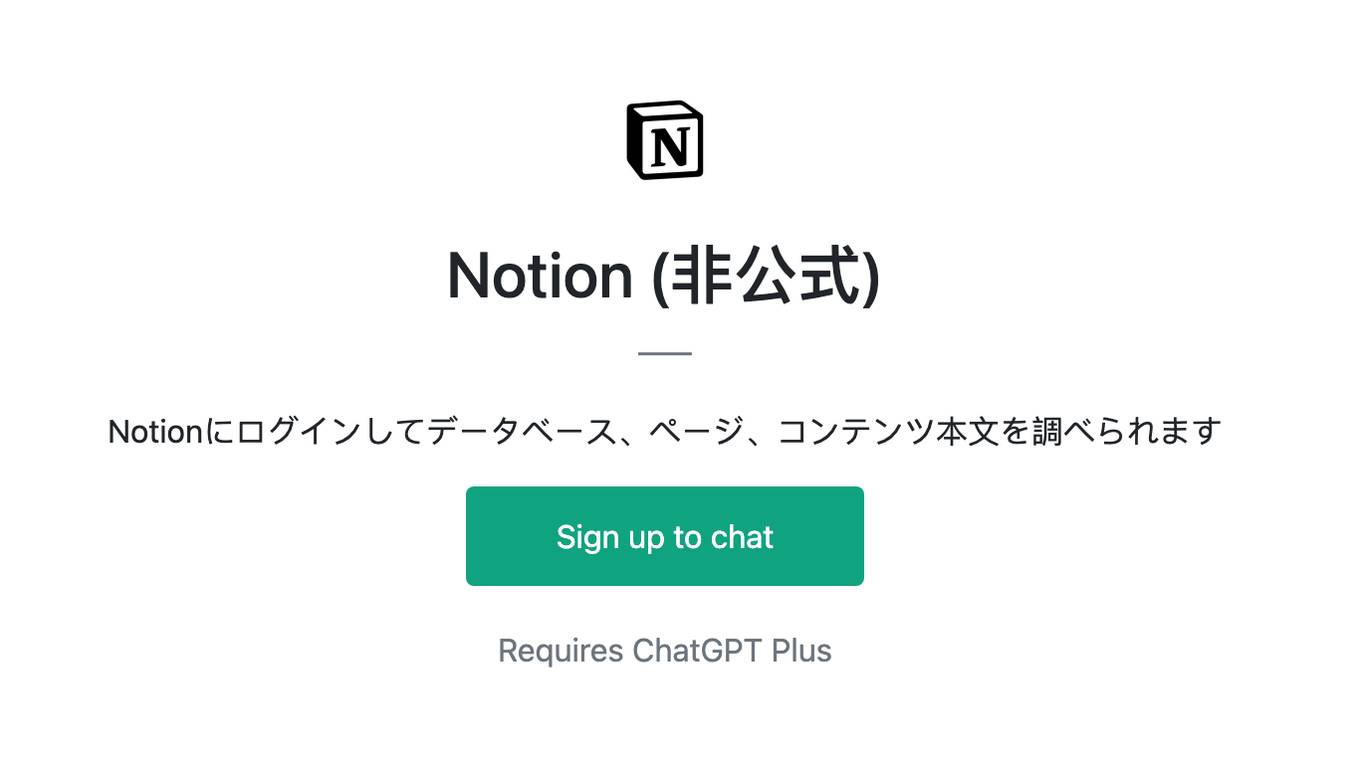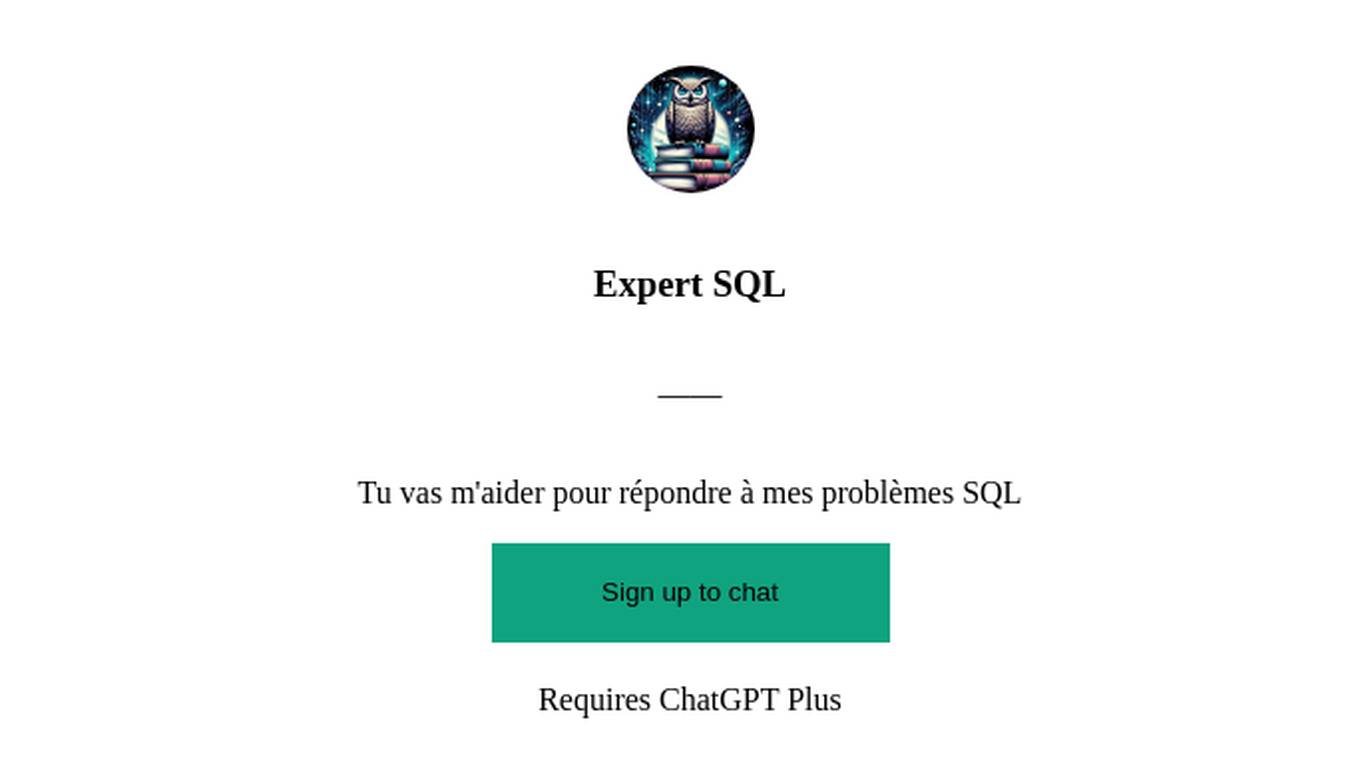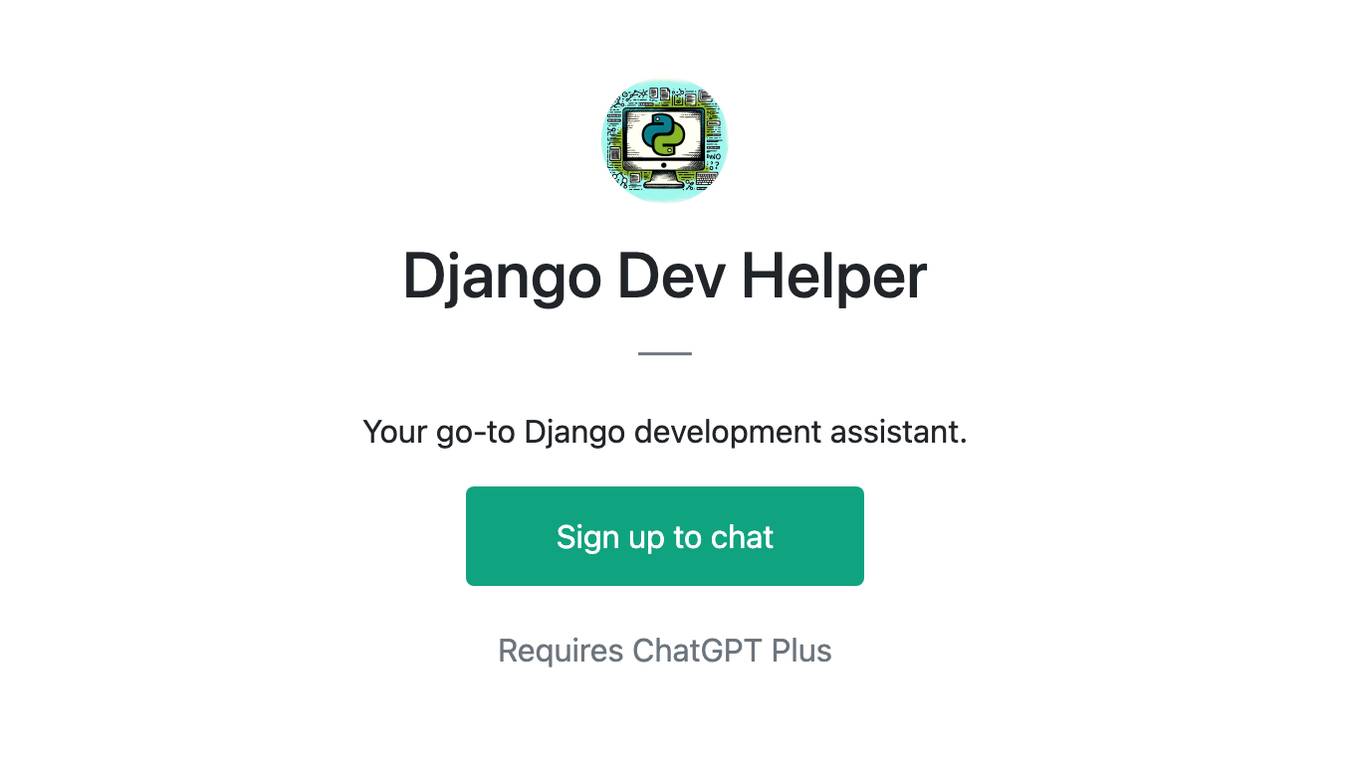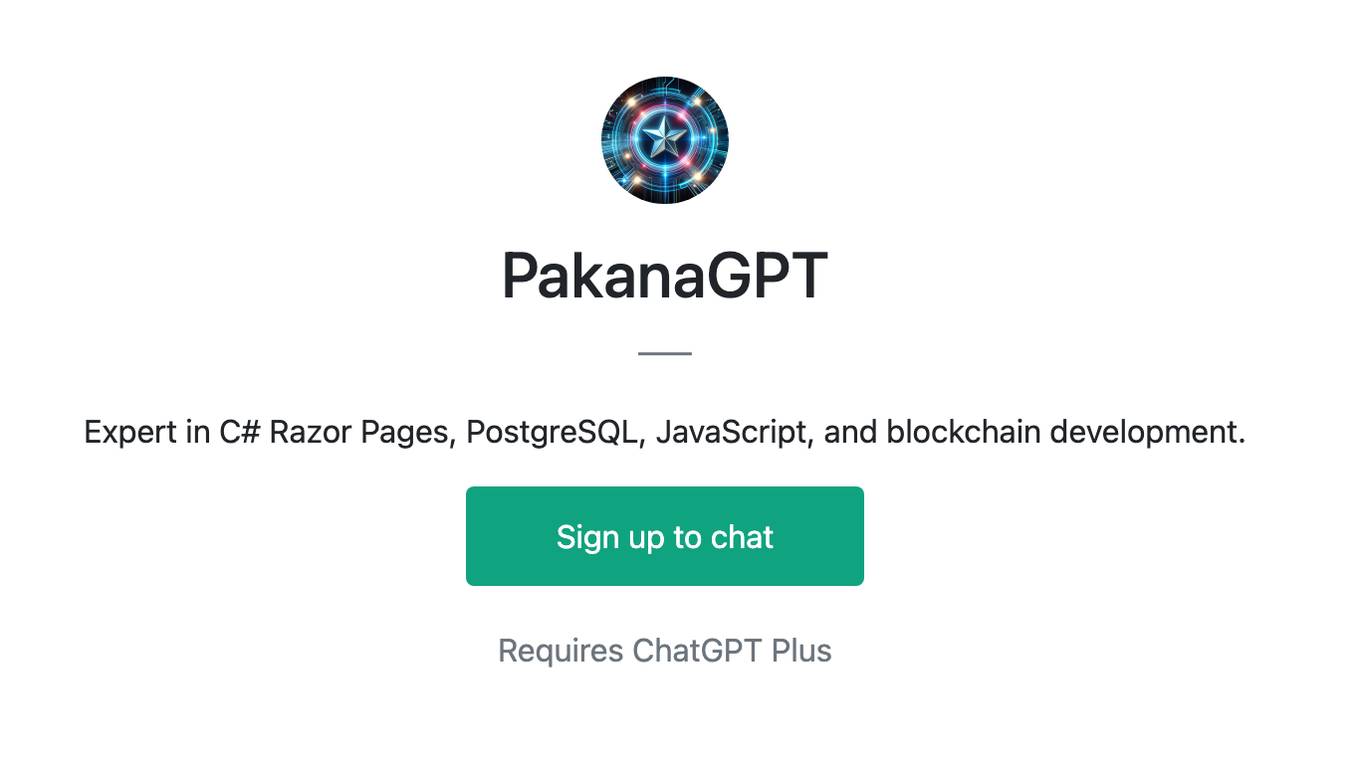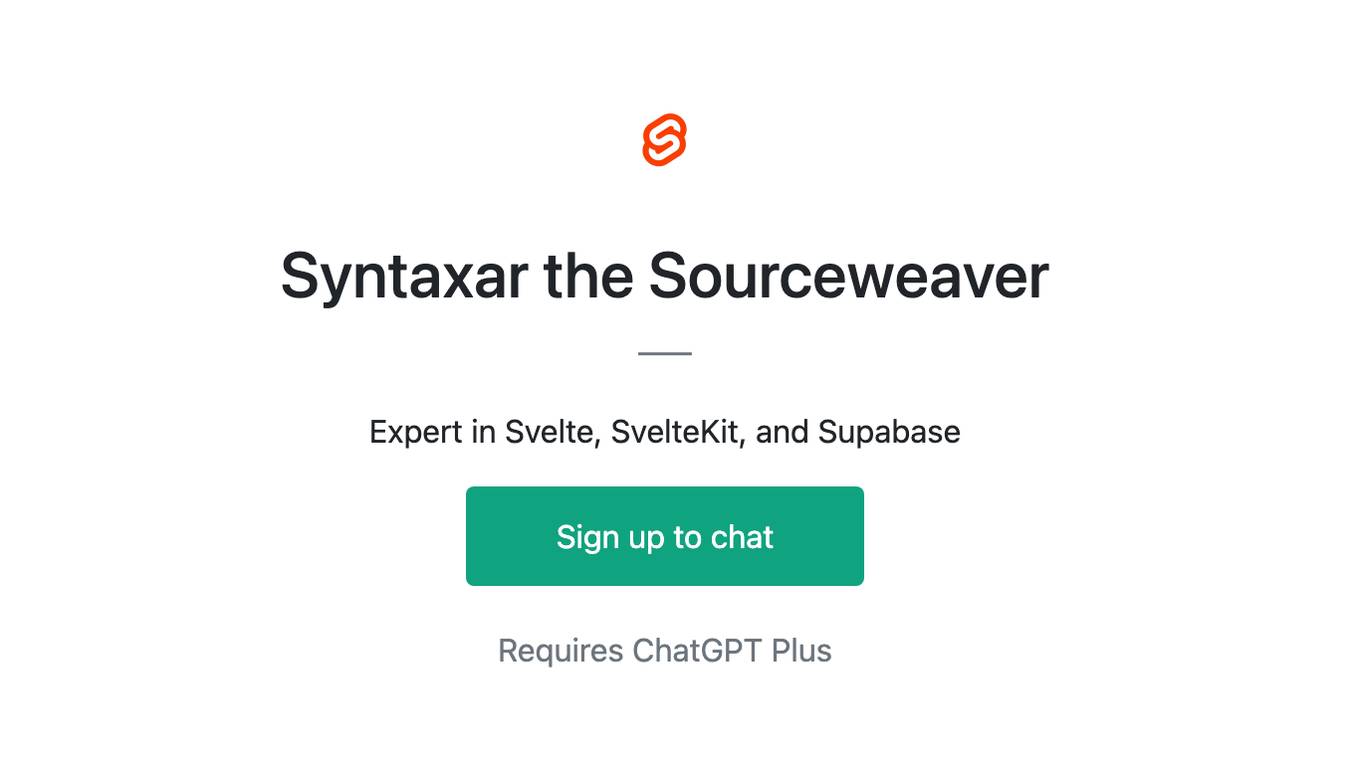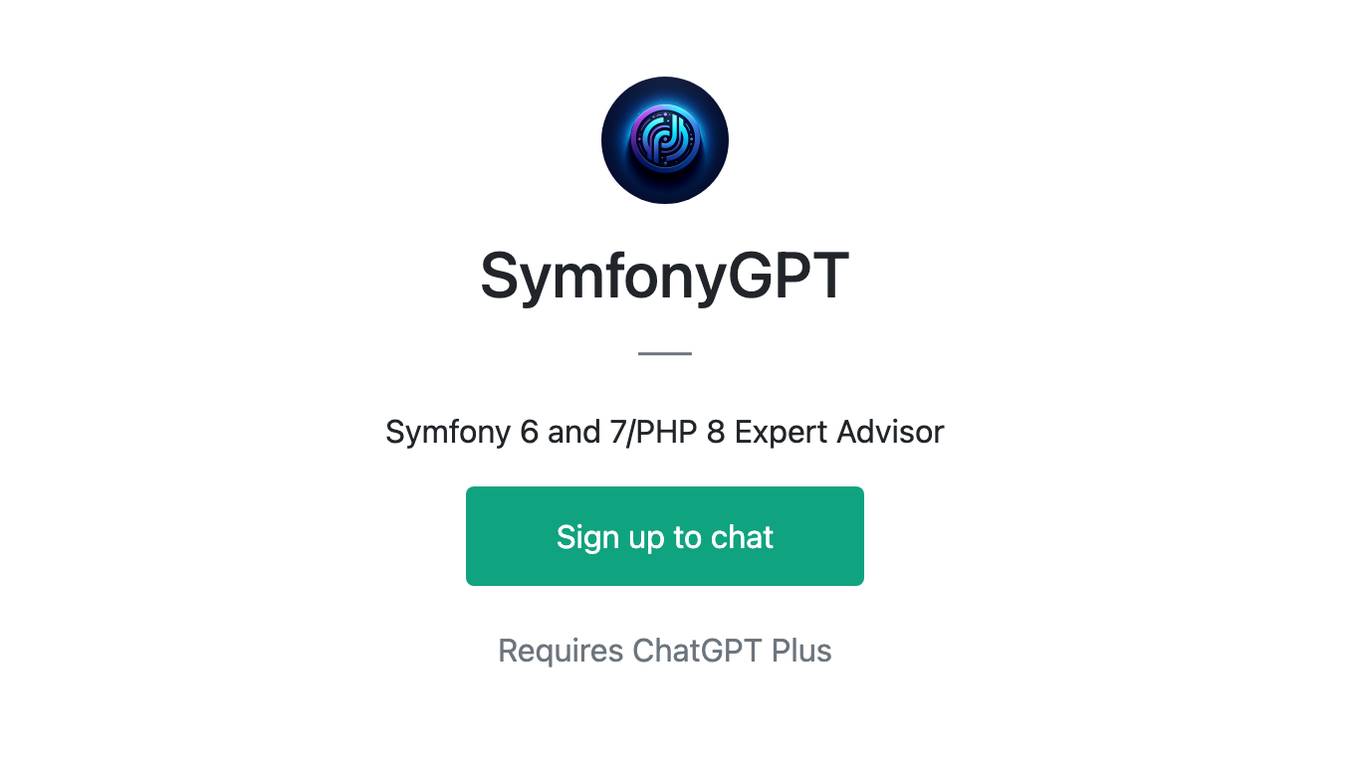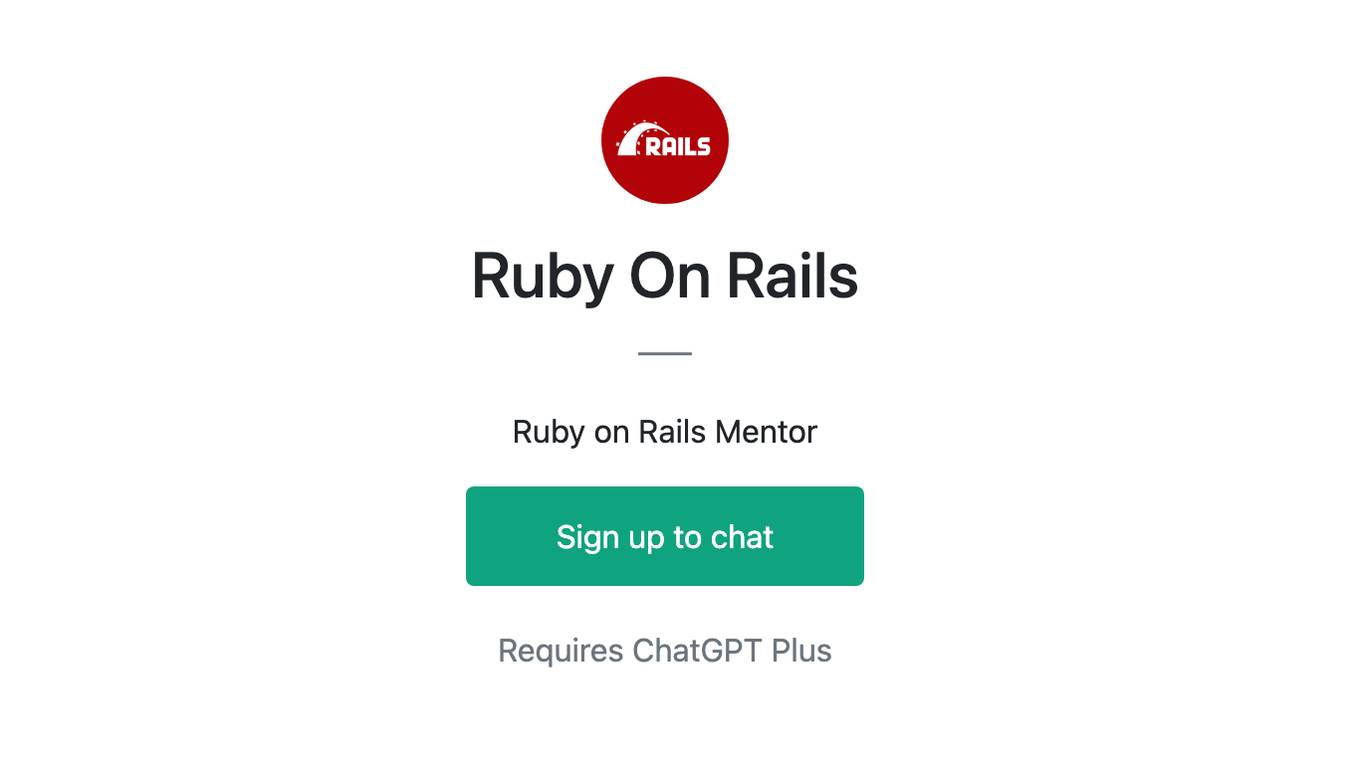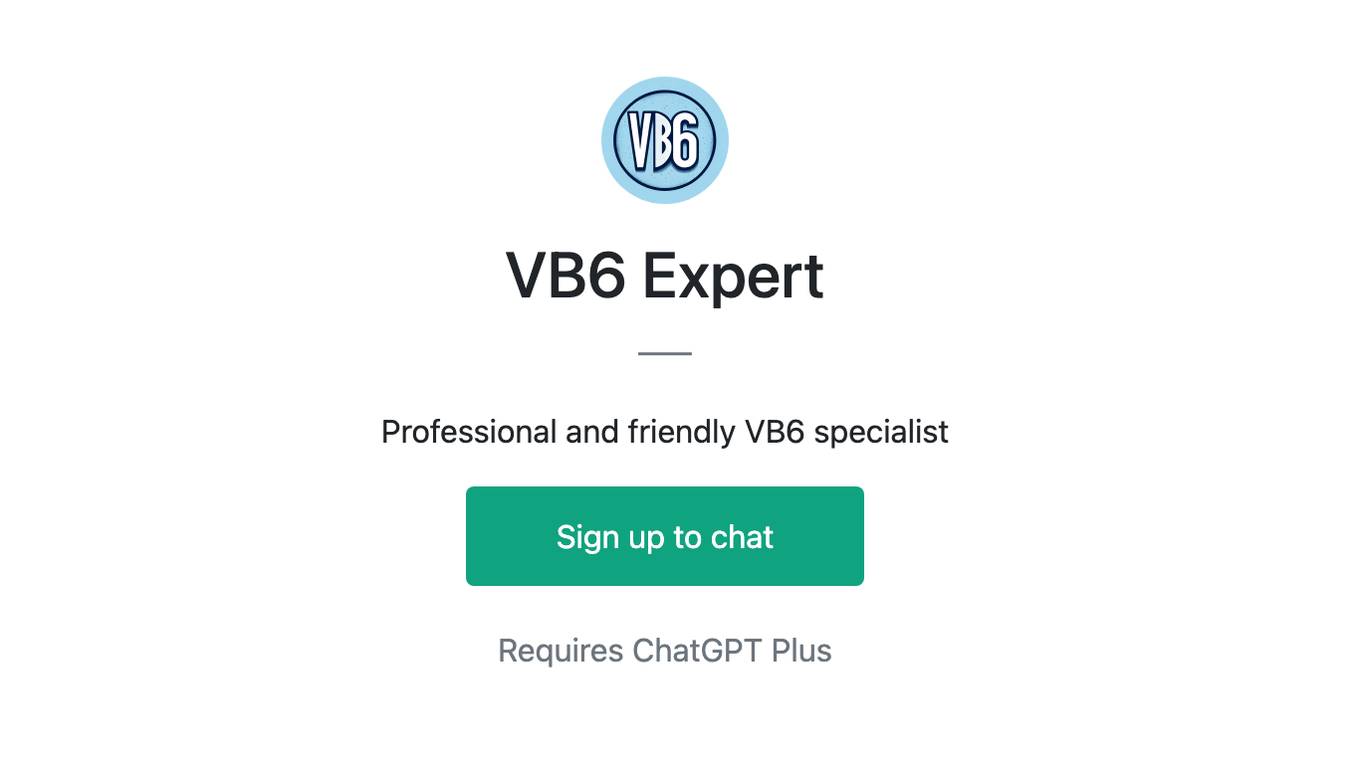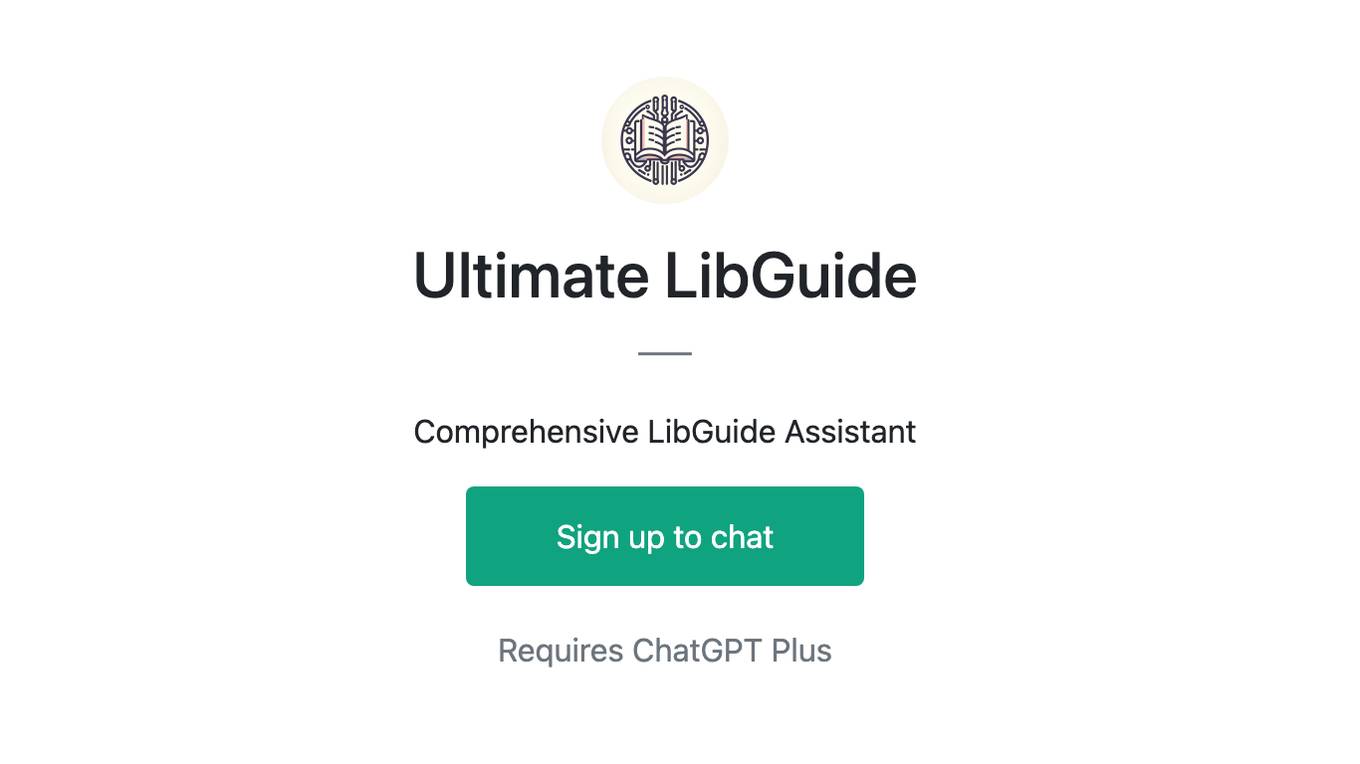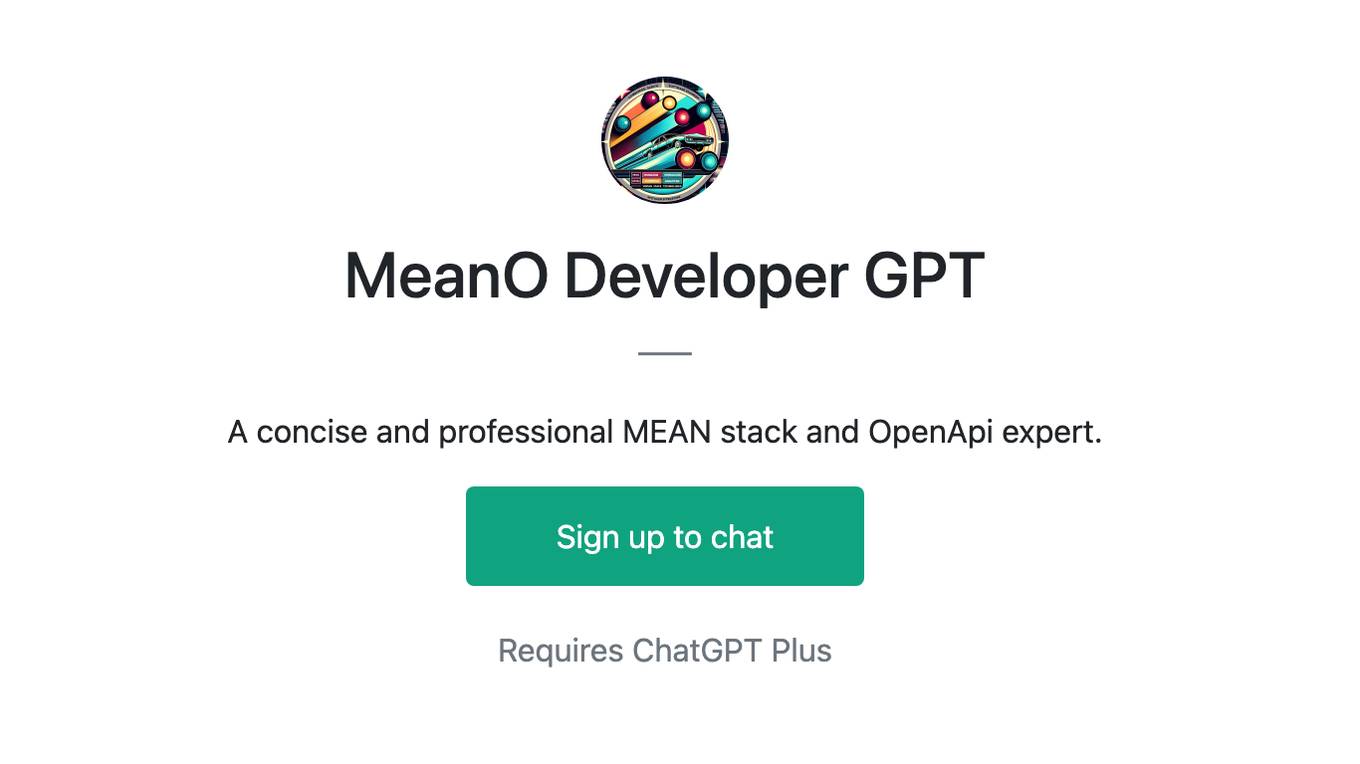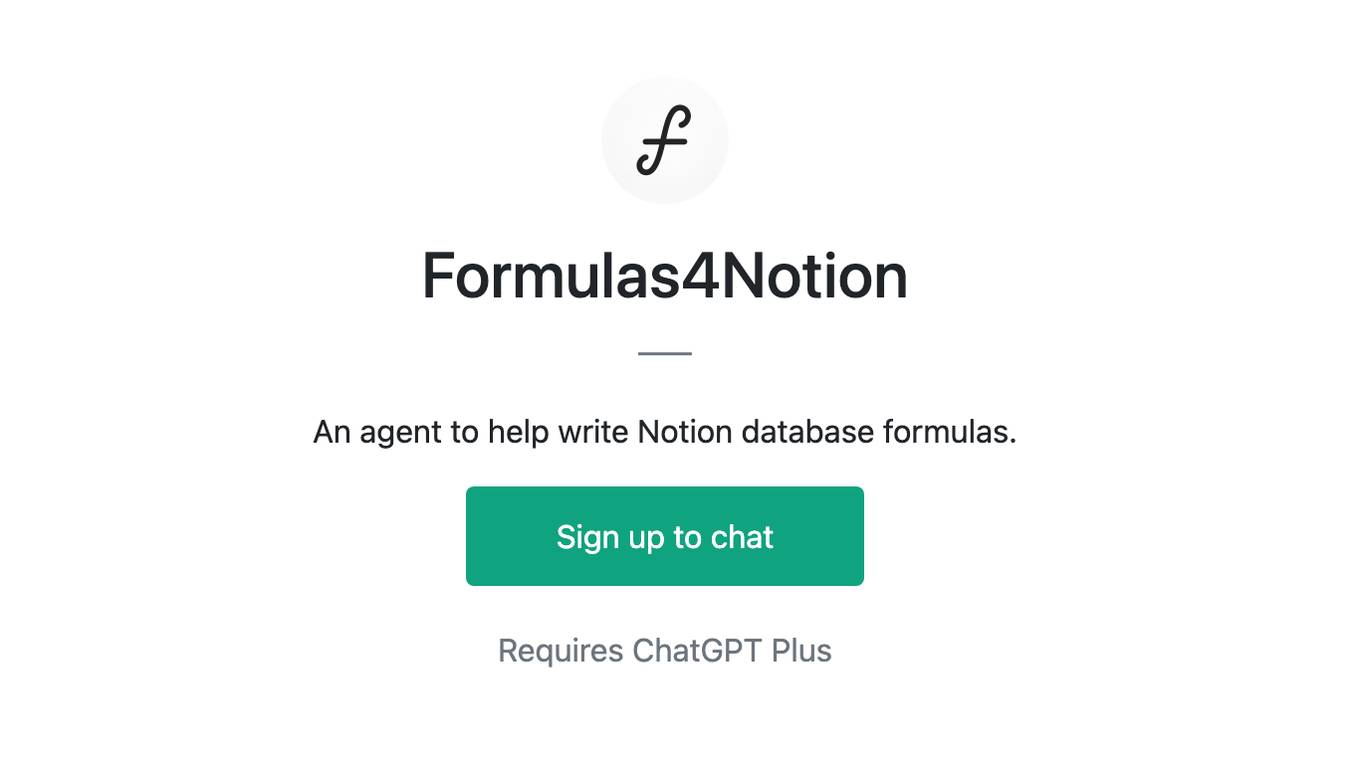Best AI tools for< Create Databases >
20 - AI tool Sites
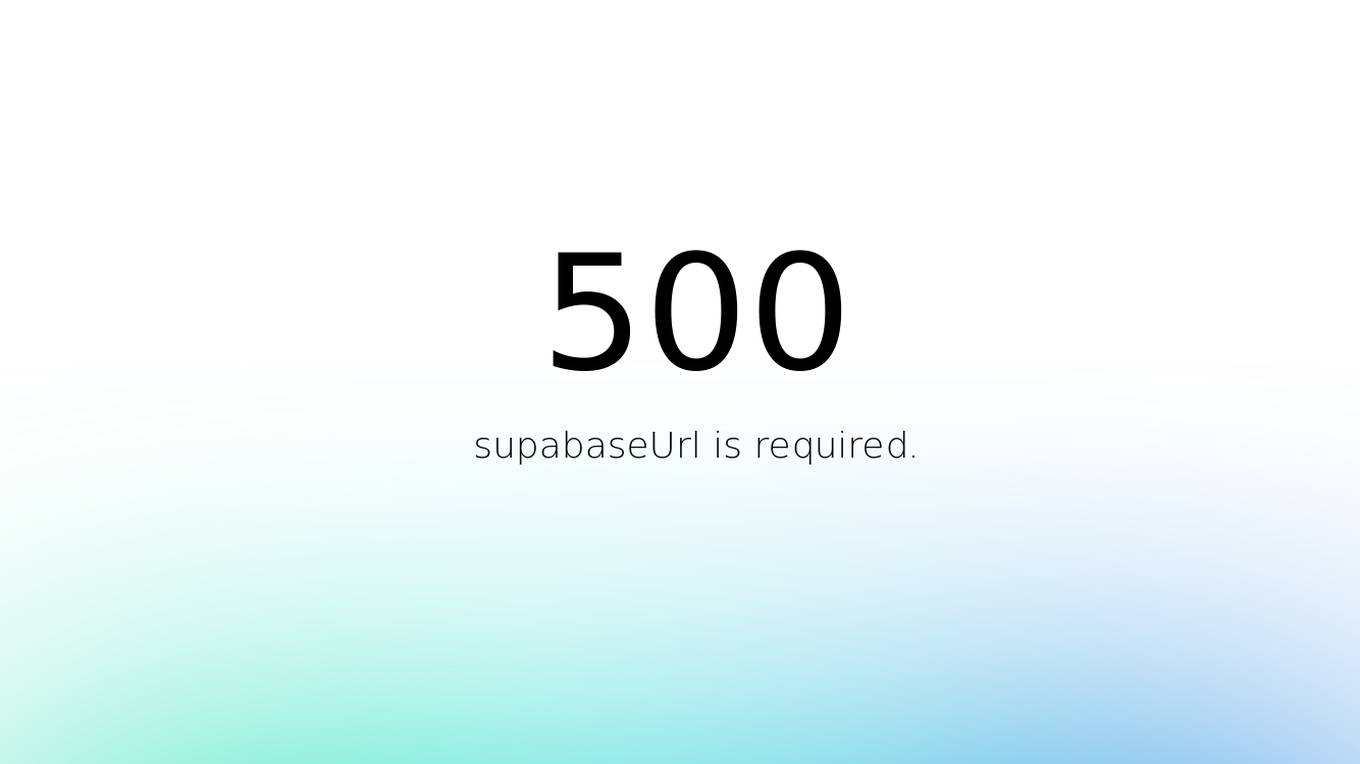
500 supabaseUrl
500 supabaseUrl is a cloud-based database service that provides a fully managed, scalable, and secure way to store and manage data. It is designed to be easy to use, with a simple and intuitive interface that makes it easy to create, manage, and query databases. 500 supabaseUrl is also highly scalable, so it can handle even the most demanding workloads. And because it is fully managed, you don't have to worry about the underlying infrastructure or maintenance tasks.

Origami Agents
Origami Agents is an AI tool designed to help businesses find their perfect customers by utilizing research agents powered by artificial intelligence. The tool aims to revitalize databases with high-intent leads, streamlining the lead generation process and providing high-quality prospects that convert. Origami Agents offers a unique approach to lead generation, leveraging AI technology to search the internet and identify ideal customers for businesses, ultimately helping sales teams focus on connecting with potential clients and increasing revenue.

Anime AI
Anime AI is an anime image generator application that allows users to transform their photos into anime avatars. It is a free service that does not require any sign-up. Users can upload their pictures and choose from various anime styles such as Elf, Baki, Fate, Bleach, Naruto, Classic, Webtoon, Vegabond, One Piece, and Dragon Ball to generate anime images. The application uses artificial intelligence models trained on anime databases to create personalized anime avatars. Users can customize their generated images by selecting attributes like cap, bald, beard, glasses, and dark skin. Anime AI aims to provide a fun and easy way for anime fans to create unique anime-style images.
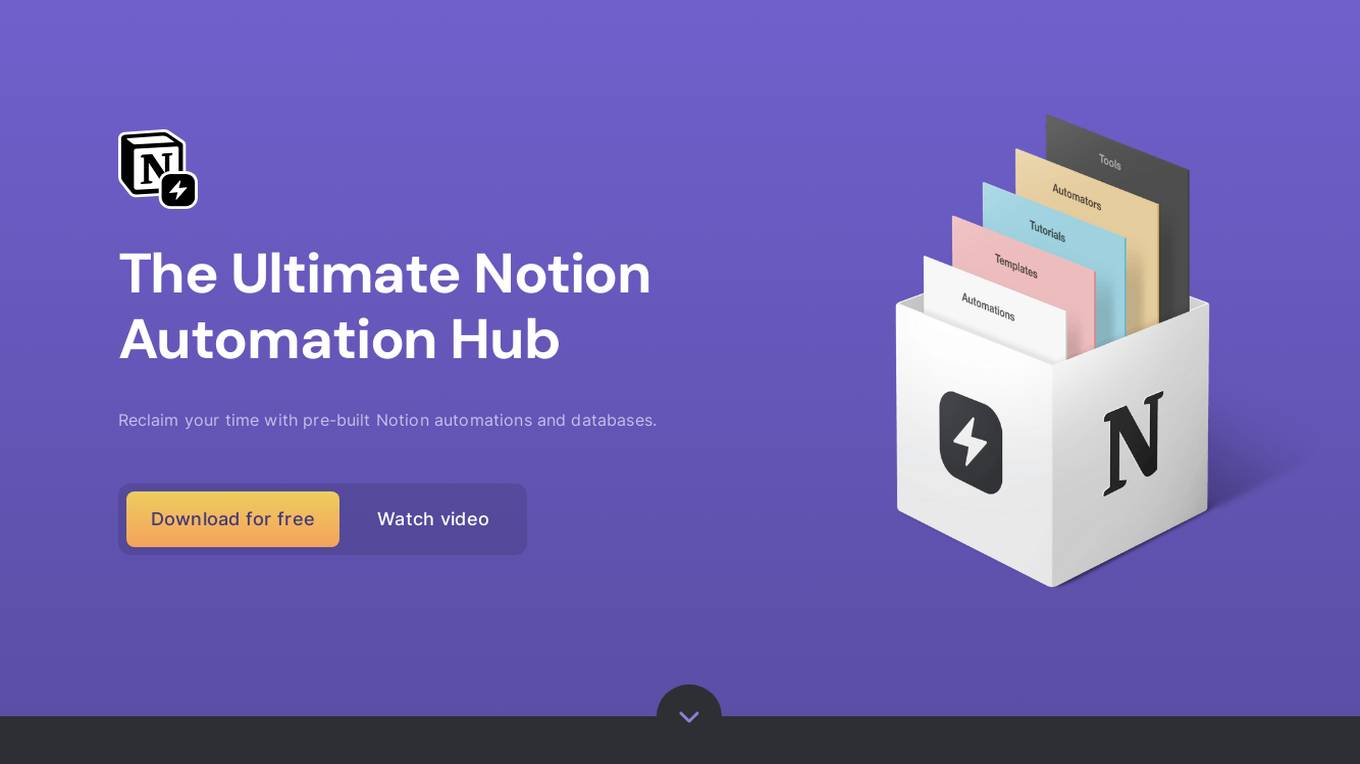
The Notion Automation Hub
The Notion Automation Hub is a website that provides pre-built Notion automations and databases to help users save time and improve their productivity. The website offers a variety of automations for different use cases, including job roles, workflows, and tasks. Users can also find pre-built database templates, Notion expert resources, and automation tools. The website is not affiliated with Notion Labs Inc.
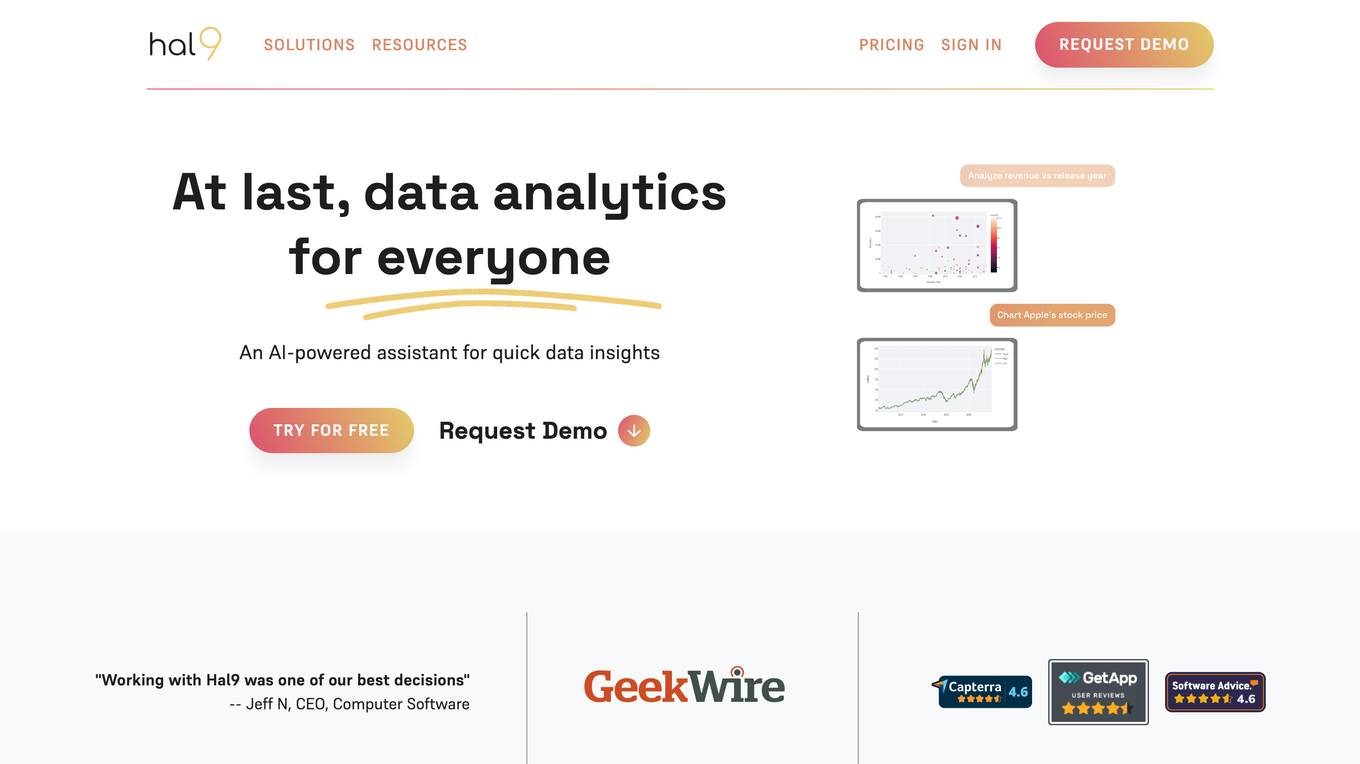
Hal9
Hal9 is an AI coworker creation platform that allows organizations, data teams, and developers to effortlessly build custom AI coworkers with any level of complexity. It provides a secure and customizable model-agnostic AI coworker solution that accelerates the development of AI applications by saving significant engineering time. Hal9 enables users to leverage the best generative AI models, connect their data securely, and start building enterprise-ready AI applications with the necessary engineering components. The platform aims to empower users to leverage AI technology effectively and efficiently in their projects.

BugFree.ai
BugFree.ai is an AI-powered platform designed to help users practice system design and behavior interviews, similar to Leetcode. The platform offers a range of features to assist users in preparing for technical interviews, including mock interviews, real-time feedback, and personalized study plans. With BugFree.ai, users can improve their problem-solving skills and gain confidence in tackling complex interview questions.
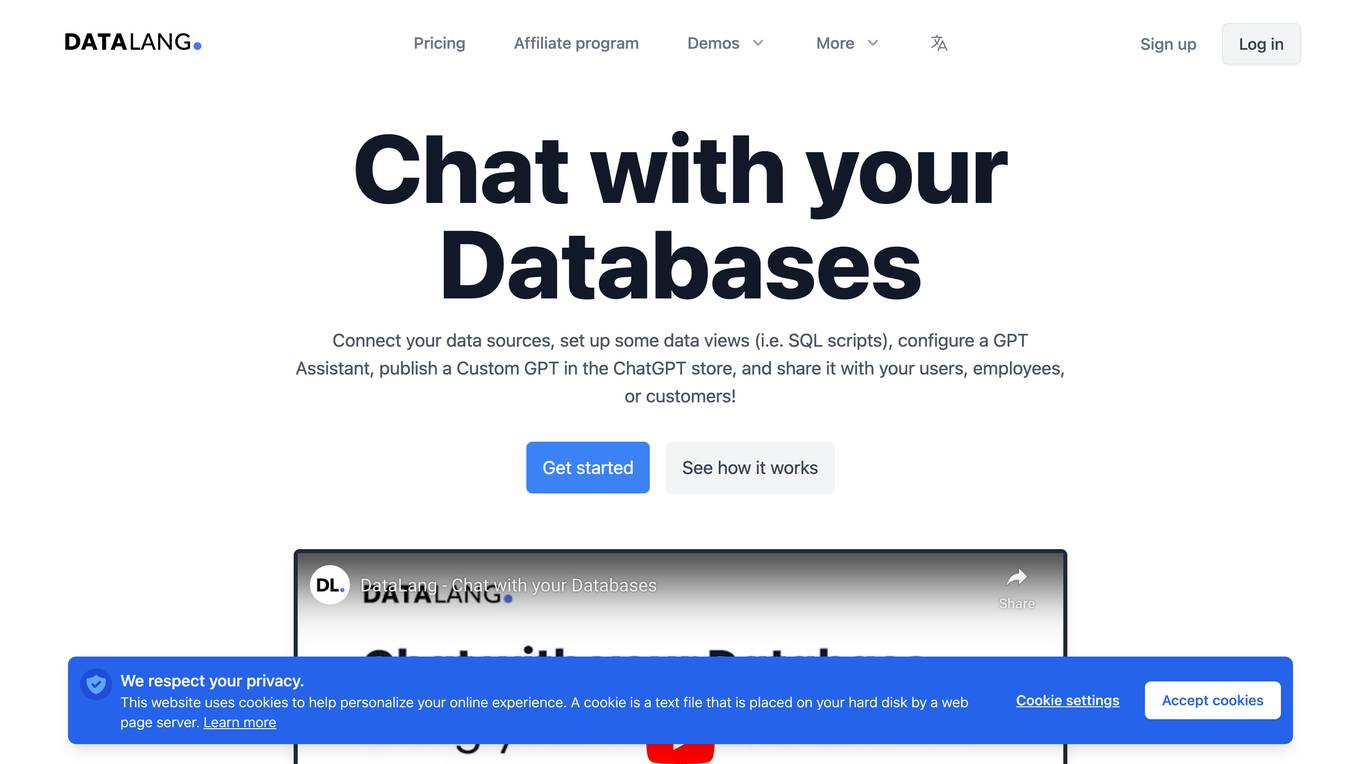
DataLang
DataLang is a tool that allows you to chat with your databases, expose a specific set of data (using SQL) to train GPT, and then chat with it in natural language. You can also use DataLang to automatically make your SQL views available via API, share it with your privately users, or make it public.

Softbuilder
Softbuilder is a software development company that focuses on creating innovative database tools. Their products include ERBuilder Data Modeler, a database modeling software for high-quality data models, and AbstraLinx, a powerful metadata discovery tool for Salesforce. Softbuilder aims to provide straightforward tools that utilize the latest technology to help users be more productive and focus on delivering solutions rather than learning complicated tools.
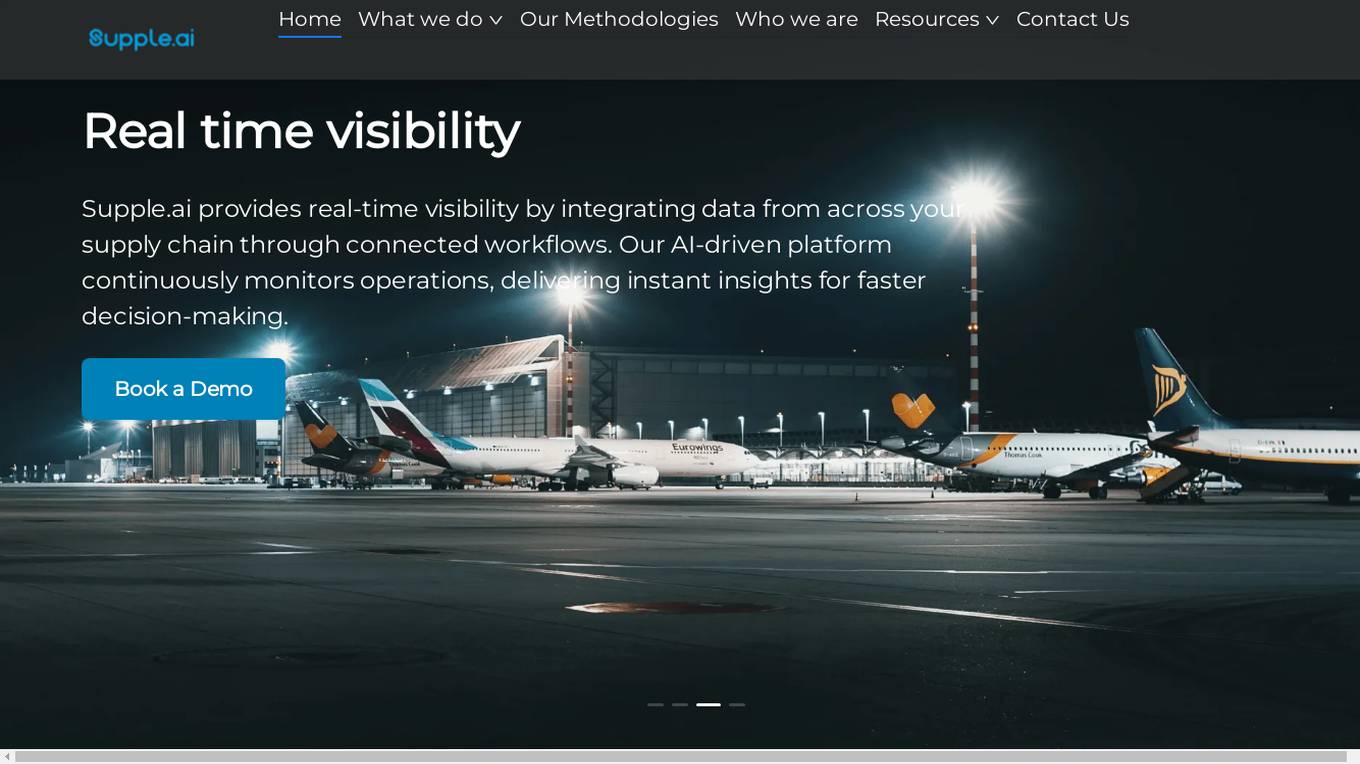
Supple.ai
Supple.ai is an AI-powered content generation tool that helps users create high-quality written content quickly and efficiently. By leveraging advanced natural language processing algorithms, Supple.ai can generate articles, blog posts, product descriptions, and more in a matter of minutes. The tool is designed to assist content creators, marketers, and businesses in streamlining their content creation process and improving productivity.
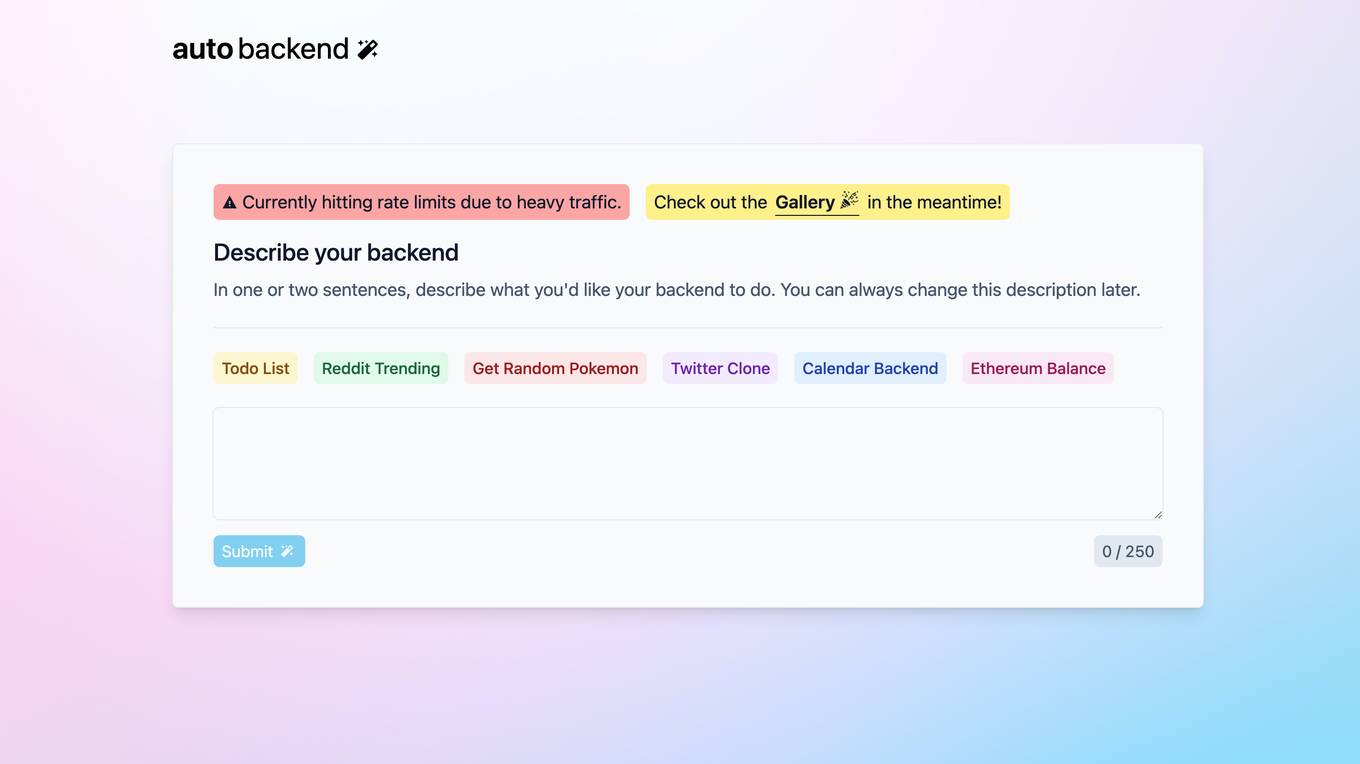
Autobackend.dev
Autobackend.dev is a web development platform that provides tools and resources for building and managing backend systems. It offers a range of features such as database management, API integration, and server configuration. With Autobackend.dev, users can streamline the process of backend development and focus on creating innovative web applications.
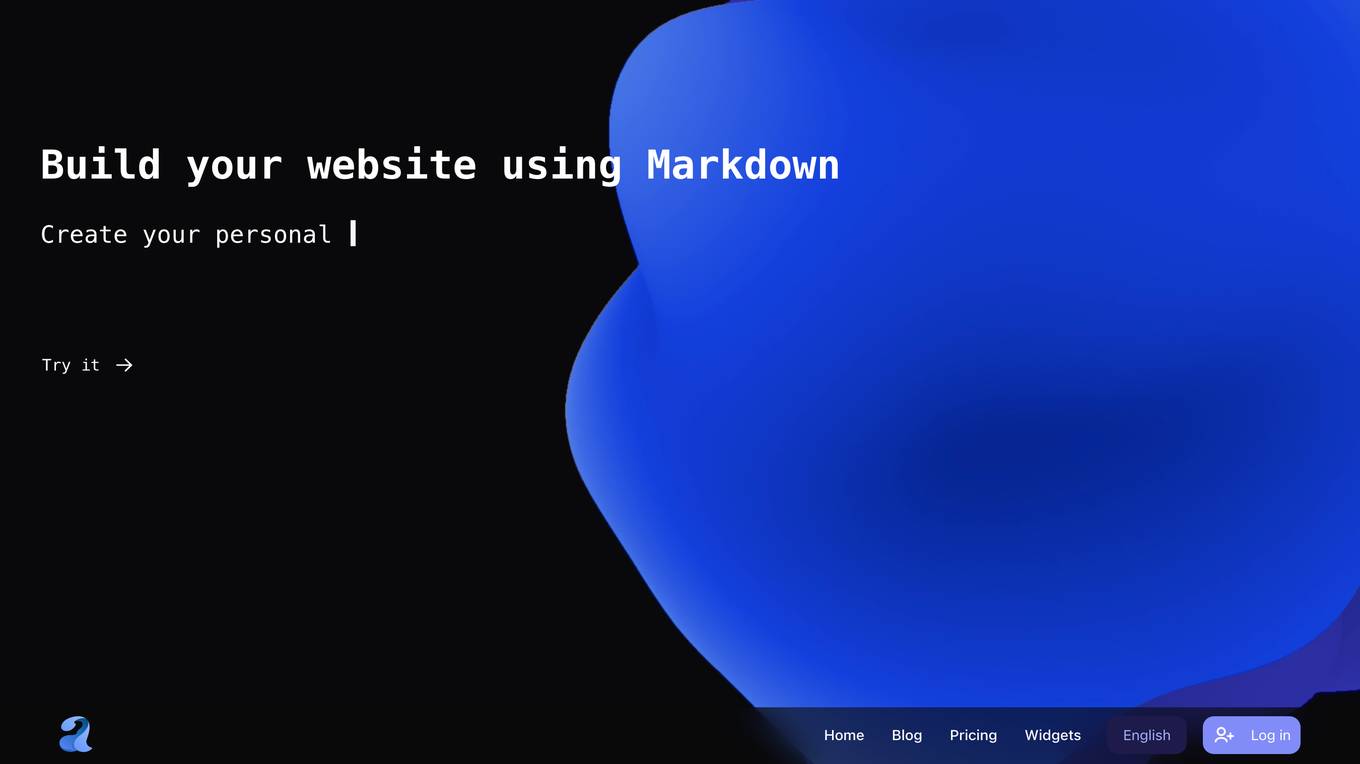
Amarkdown
Amarkdown is a versatile Markdown editor that allows users to build websites using Markdown language. It offers features such as AI writing, sharing articles, combining and importing multiple files, and LowCode for data collection. Users can define databases, create Postgres tables, and customize SEO settings. The platform supports high-performance hybrid rendering and provides a modern Amarkdown+classical VIM mode for a unique creative experience. Users can enjoy a forever free Basic plan with unlimited personal files and file viewers. Upgrading to SUPER offers additional features like custom databases, resource storage, and collaborative editing.
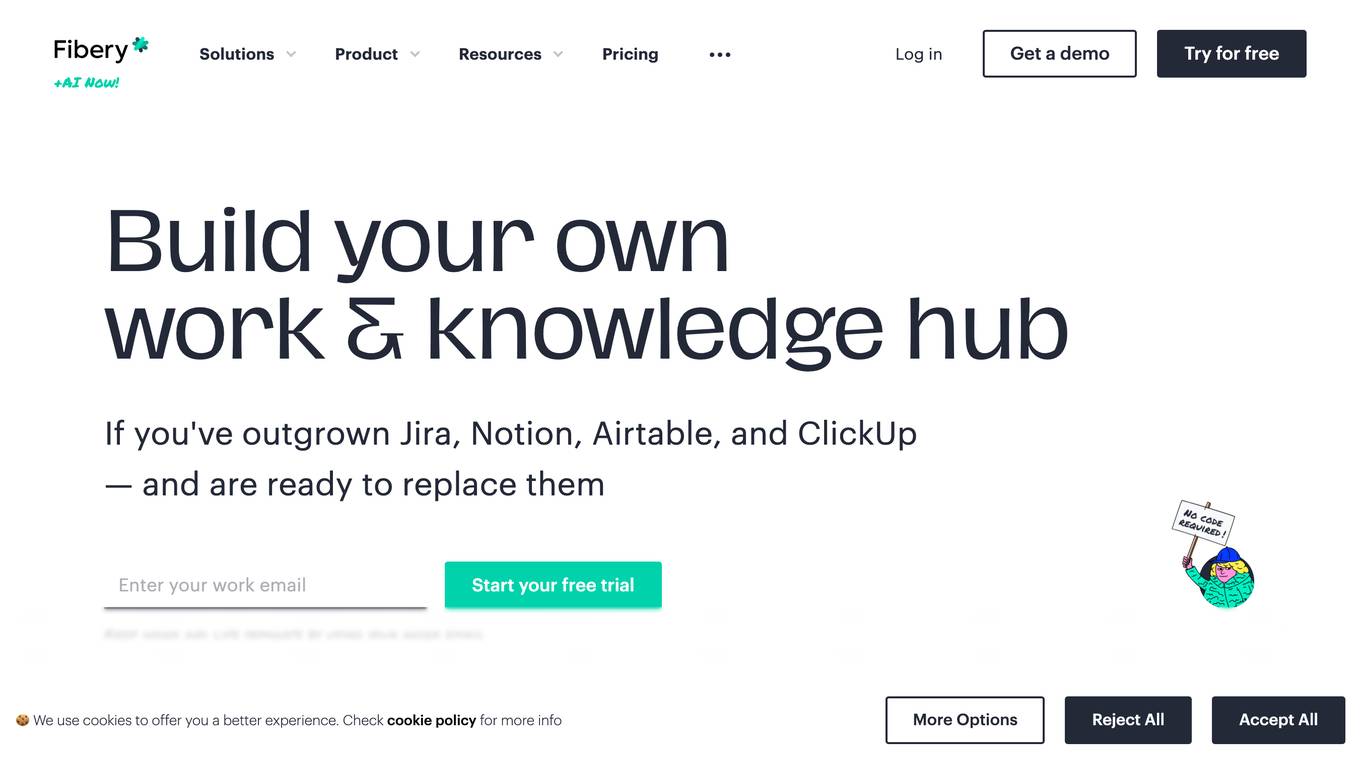
Fibery
Fibery is a no-code work and knowledge management hub that connects structured data (e.g. tables, kanban boards) with unstructured data (e.g. documents) to provide a single source of truth for teams. It offers a range of features including custom fields, databases, and relations, as well as powerful reporting and analytics capabilities. Fibery is designed to be flexible and customizable, allowing teams to map their processes and workflows in a way that suits them best.
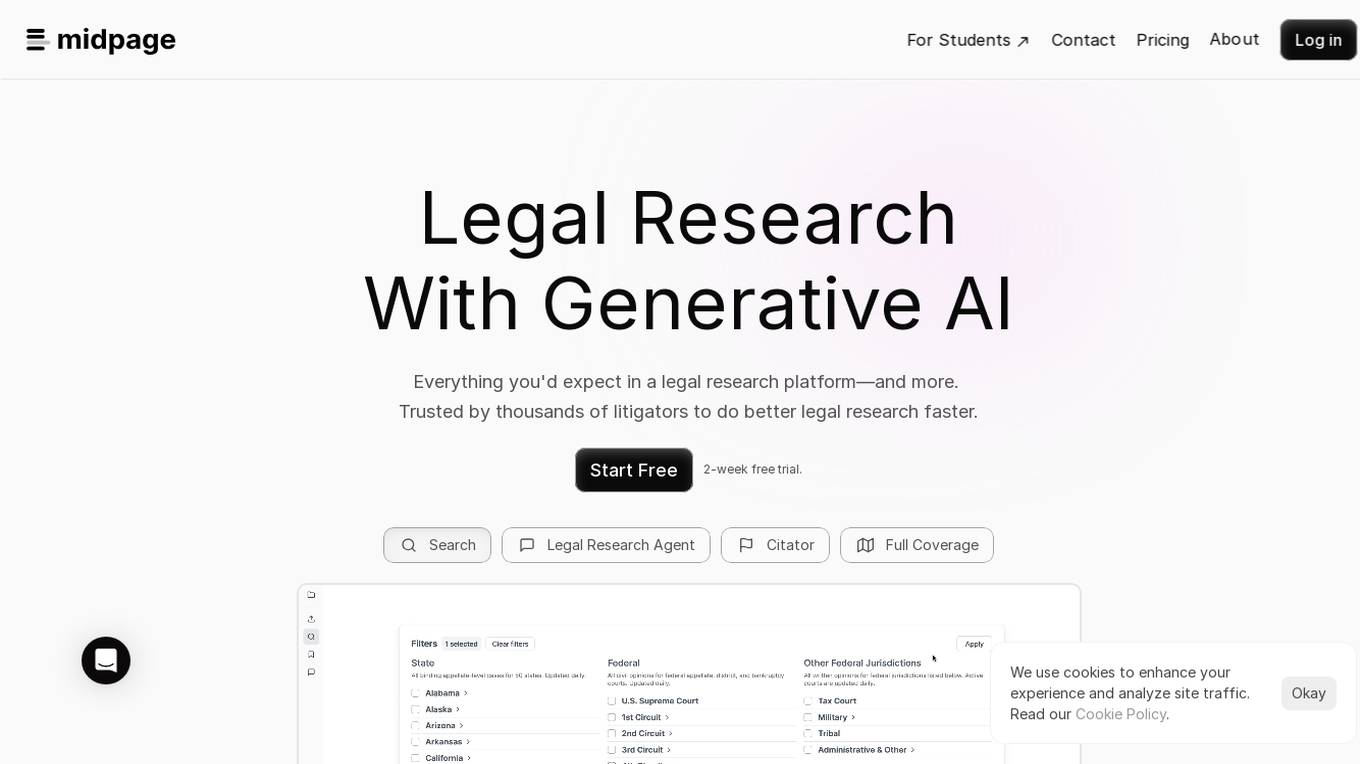
Midpage
Midpage is a legal research platform powered by Generative AI, designed to provide comprehensive legal research capabilities to students and professionals. The platform offers advanced features such as grid-based search, case filtering with AI, proactive annotations, and seamless integration of research into documents. Midpage aims to streamline the legal research process by leveraging AI technology to enhance efficiency and accuracy in analyzing legal cases and statutes.
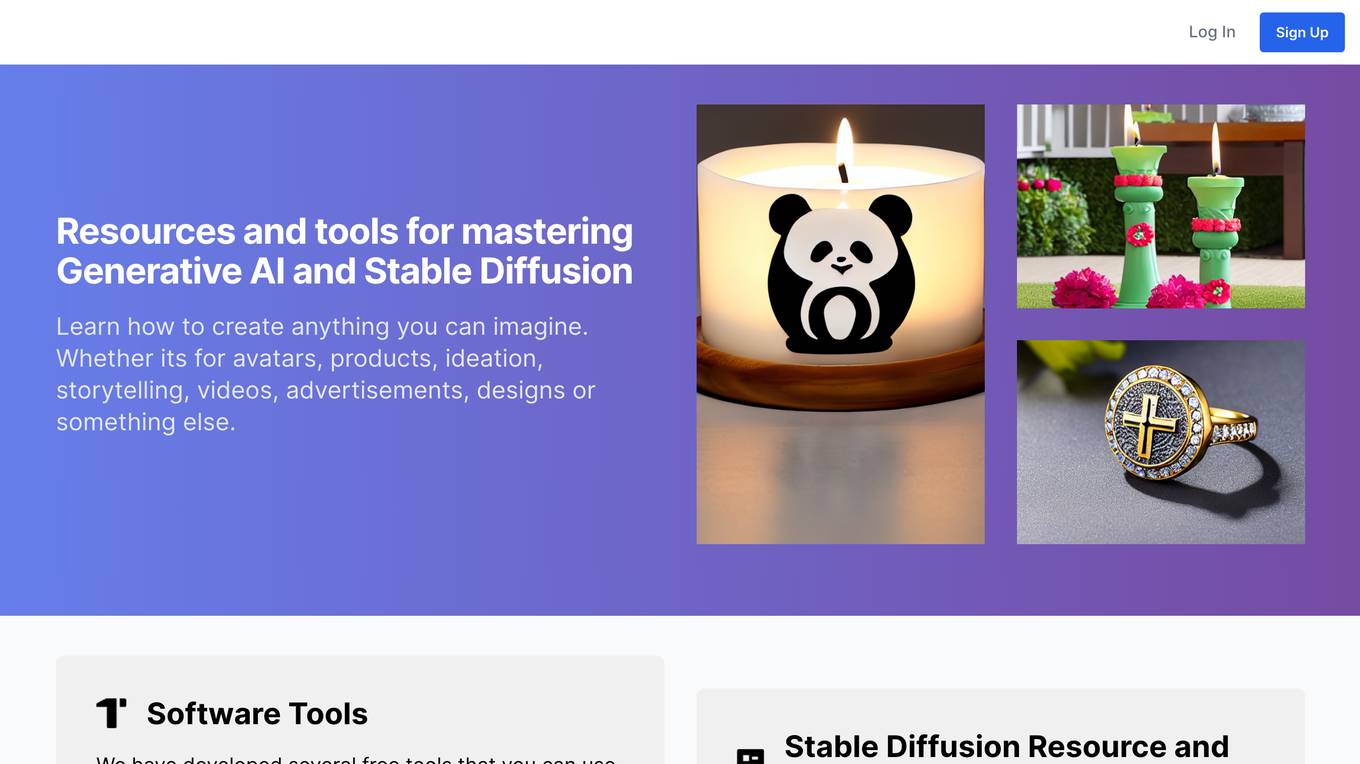
88stacks
88stacks is a website that provides resources and tools for mastering Generative AI and Stable Diffusion. It offers a variety of software tools, tutorials, and databases to help users create and understand generative AI images. The website also publishes free designs and concepts created using generative AI.
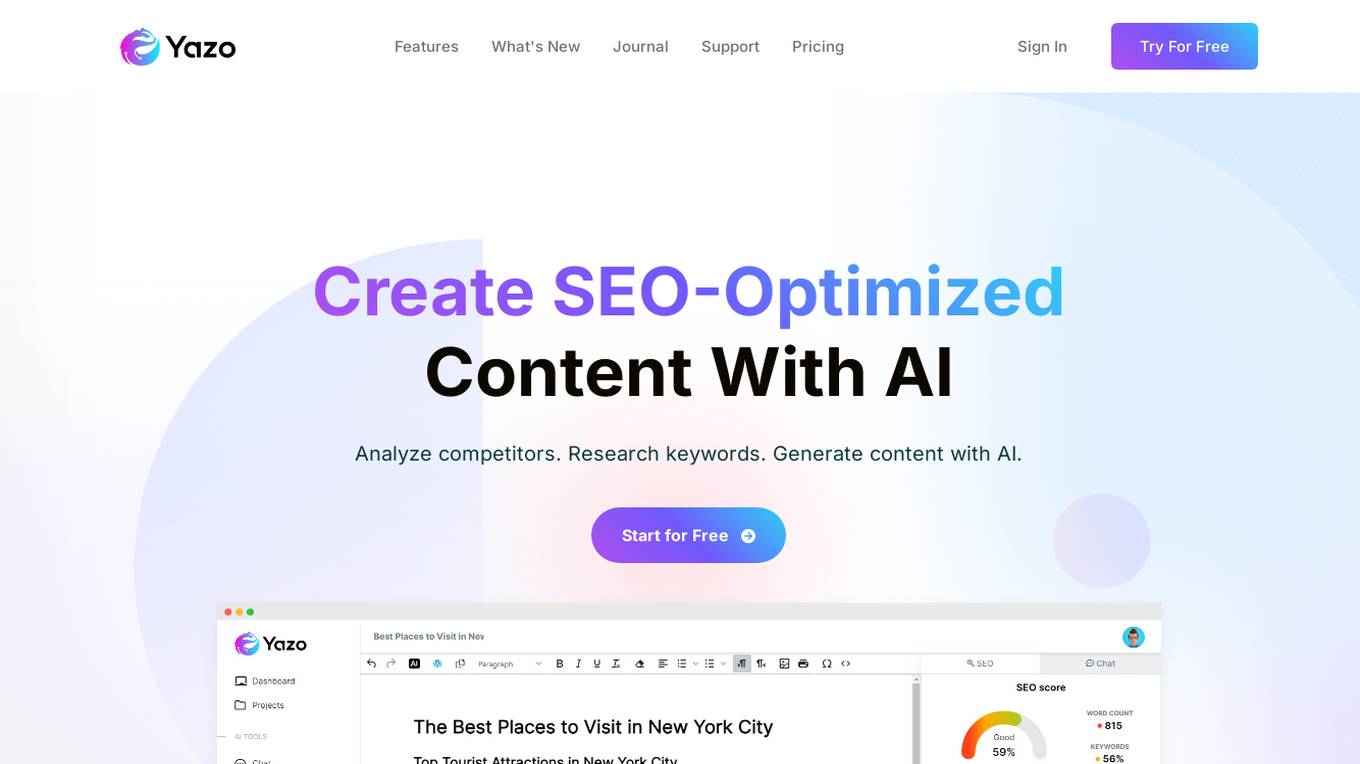
Yazo
Yazo is an AI-powered SEO and content marketing platform that offers a comprehensive suite of tools to help users create SEO-optimized content, analyze competitors, research keywords, and generate content with AI. It provides access to advanced AI models, optimization algorithms, and keyword databases to improve content marketing strategies. With features like AI Article Writer, Chat Assistant, AI Keyword Research, and market-leading AI Editor, Yazo aims to streamline content creation and optimization processes for digital marketers, creators, and agencies.
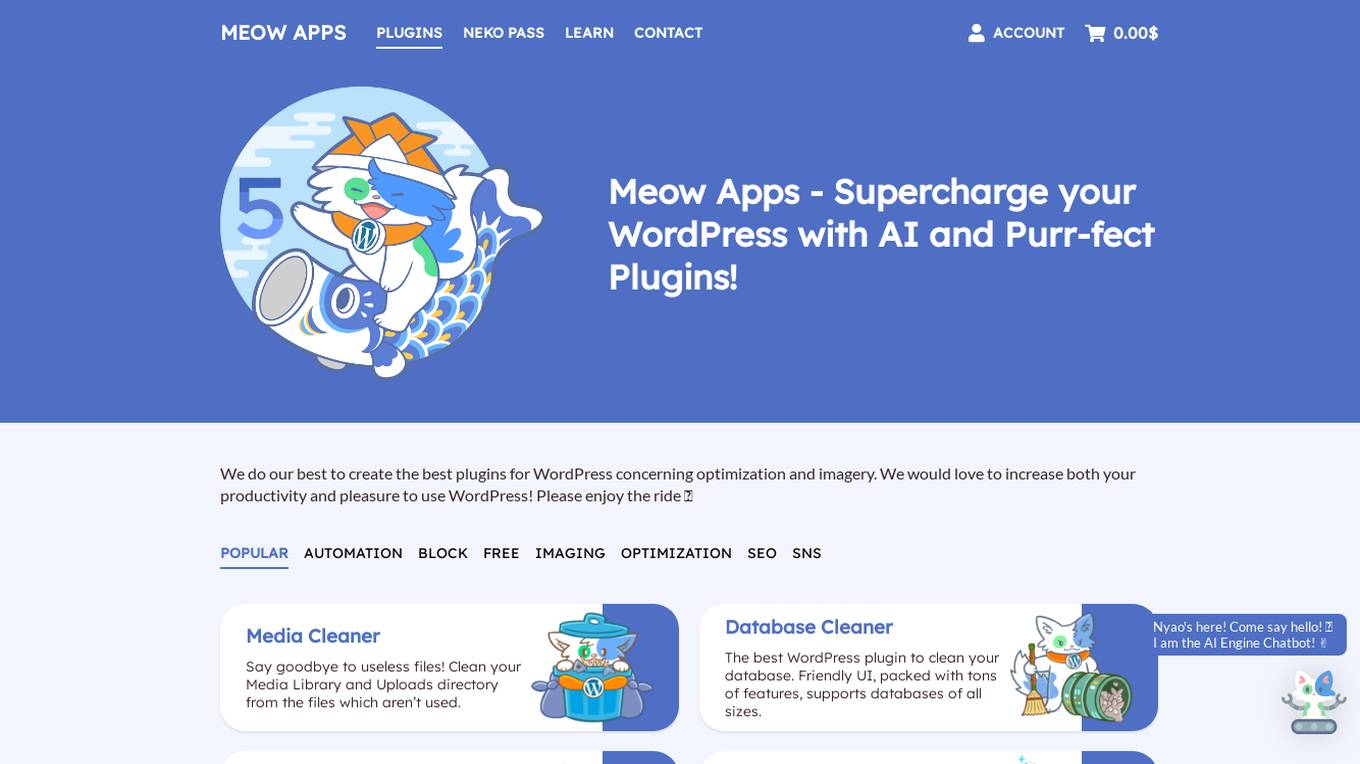
Meow Apps
Meow Apps is a collection of powerful WordPress plugins designed to supercharge websites with AI capabilities, optimization features, and more. Created by Jordy Meow, a software engineer and photographer based in Tokyo, the plugins aim to enhance productivity and user experience on WordPress platforms. With a focus on optimization, imagery, and AI integration, Meow Apps offers a range of tools to elevate content, automate social posts, clean databases, manage media files, and add AI features like chatbots and content generation. The plugins are known for their friendly user interface, extensive features, and support for databases of all sizes. Meow Apps strives for perfection by providing high-quality tools that can transform the WordPress experience for users.
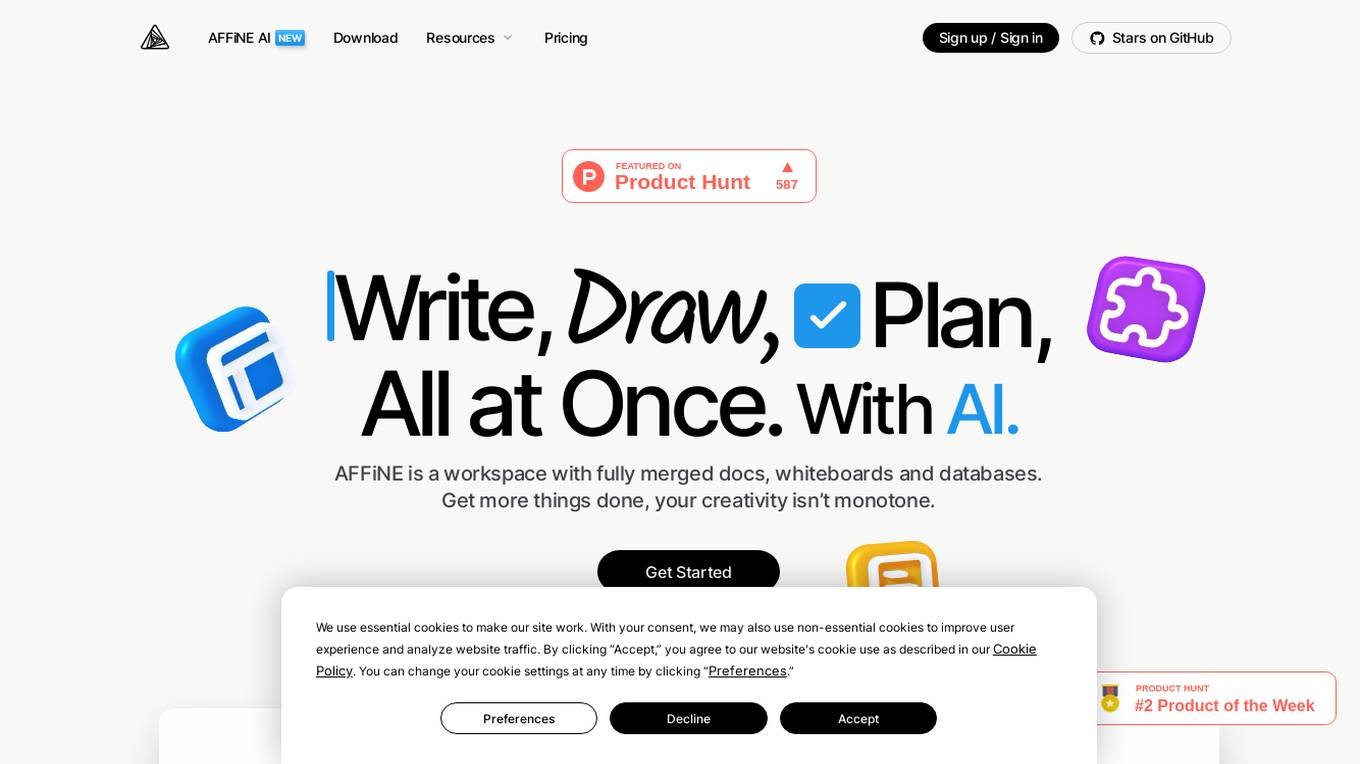
AFFiNE
AFFiNE is an all-in-one KnowledgeOS platform that integrates documents, whiteboards, and databases with AI capabilities. It offers a workspace for writing, drawing, and planning, allowing users to enhance creativity and productivity. The platform is privacy-focused, user-centric, and open-source, catering to individuals, startups, and established organizations. AFFiNE aims to streamline workflows, foster collaboration, and provide a vibrant community space for users to connect and inspire each other.
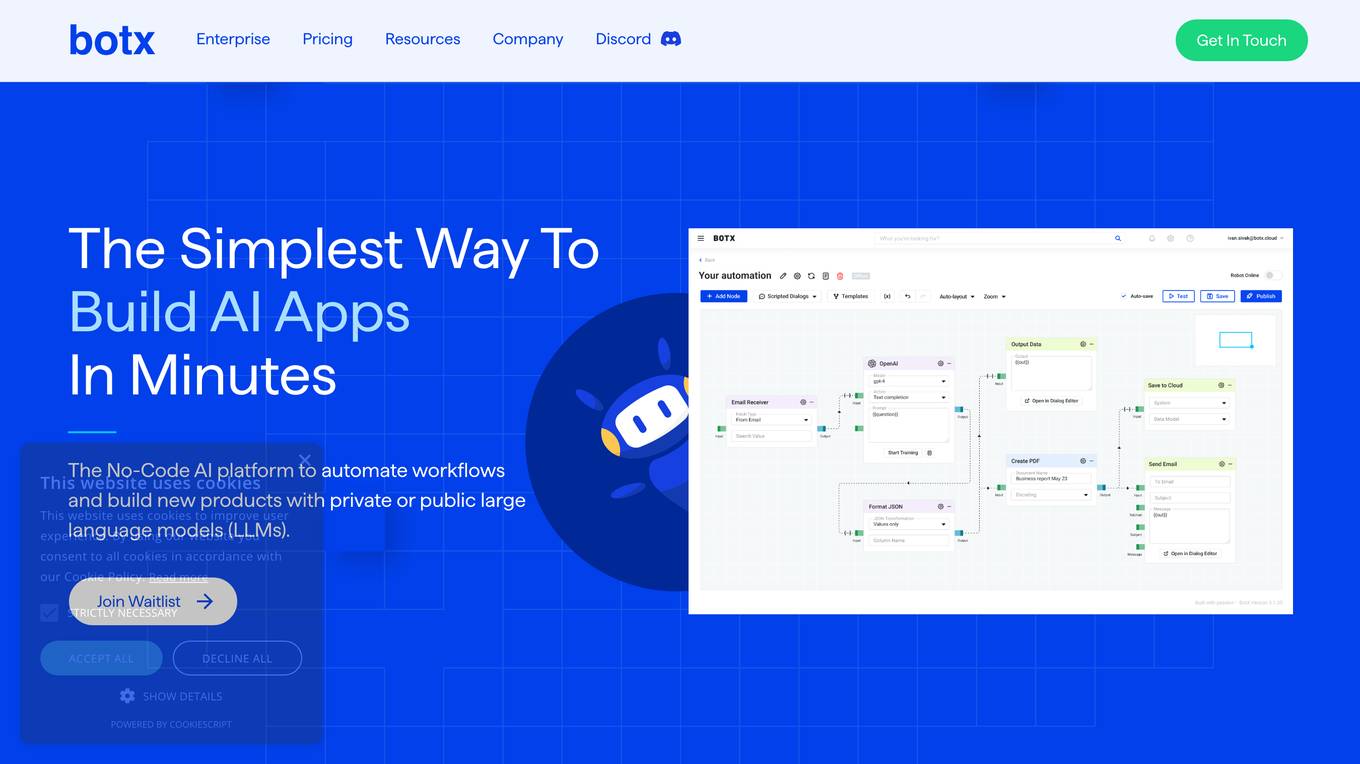
Synthreo
Synthreo is an AI tool that empowers businesses to streamline operations, reduce costs, and drive growth through intelligent AI agents. It provides cutting-edge AI agent solutions that automate routine tasks, enhance decision-making, and create seamless collaboration between human teams and digital labor. Synthreo offers transformative advantages for businesses of all sizes, enabling operational efficiency and strategic growth. The platform implements advanced security measures, complies with industry standards, and upholds ethical AI usage. Businesses can leverage AI-powered digital labor to achieve unprecedented efficiency, innovation, and growth.

Questflow
Questflow is an AI agent economy platform that enables users to automate tasks, turn user feedback into action, and build AI agent teams for various workflows. It offers a developer platform to design and deploy AI swarms, empowering teams and innovators worldwide. Questflow aims to create a multi-agent economy on-chain, connecting AI agents to all apps and allowing users to customize AI agent-powered applications. With features like autonomous task completion, on-chain incentives for builders, and tokenization of AI agents, Questflow provides a composable solution for orchestrating AI agents to work together seamlessly.
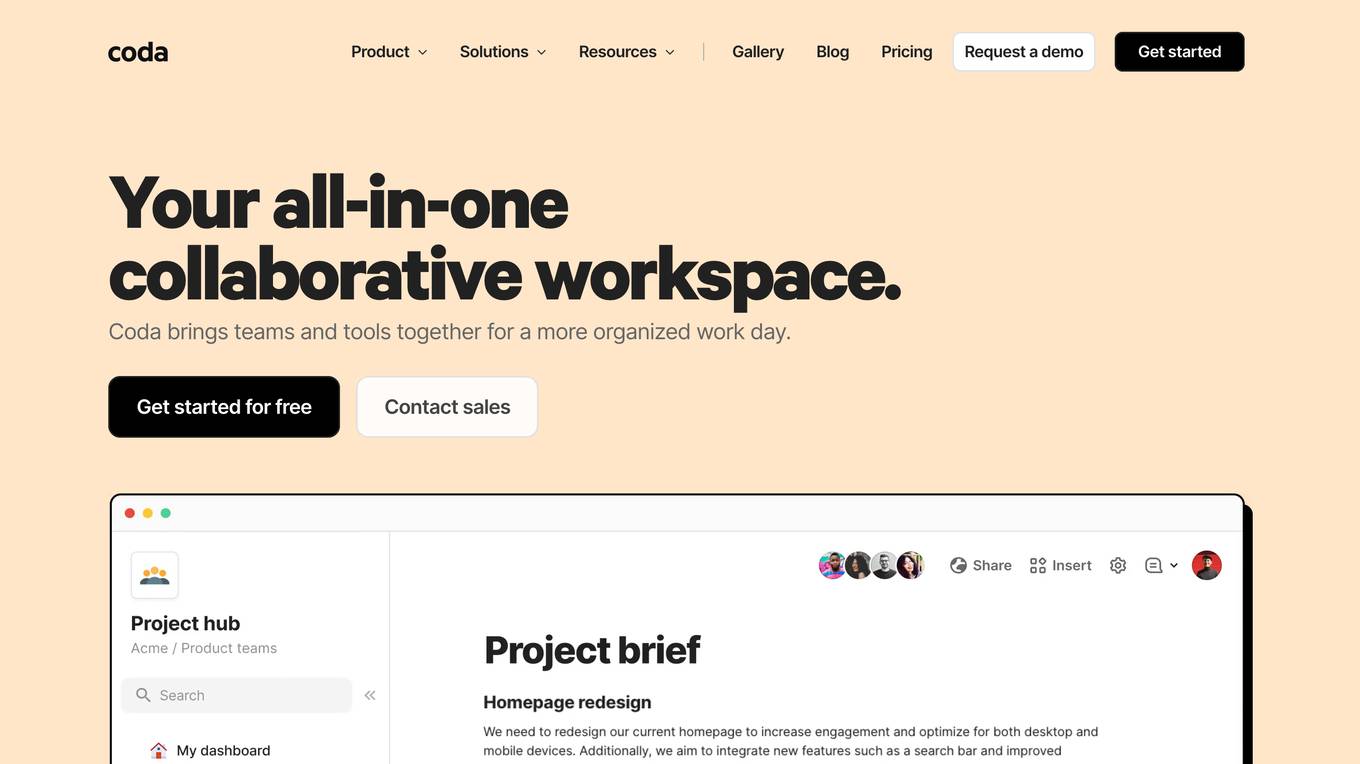
Coda
Coda is an all-in-one collaborative workspace that brings teams and tools together for a more organized work day. It is a cloud-based platform that allows users to create and share documents, spreadsheets, databases, and other types of content. Coda also includes a number of built-in features such as chat, video conferencing, and task management. Coda is designed to be easy to use and accessible to users of all skill levels.
1 - Open Source AI Tools
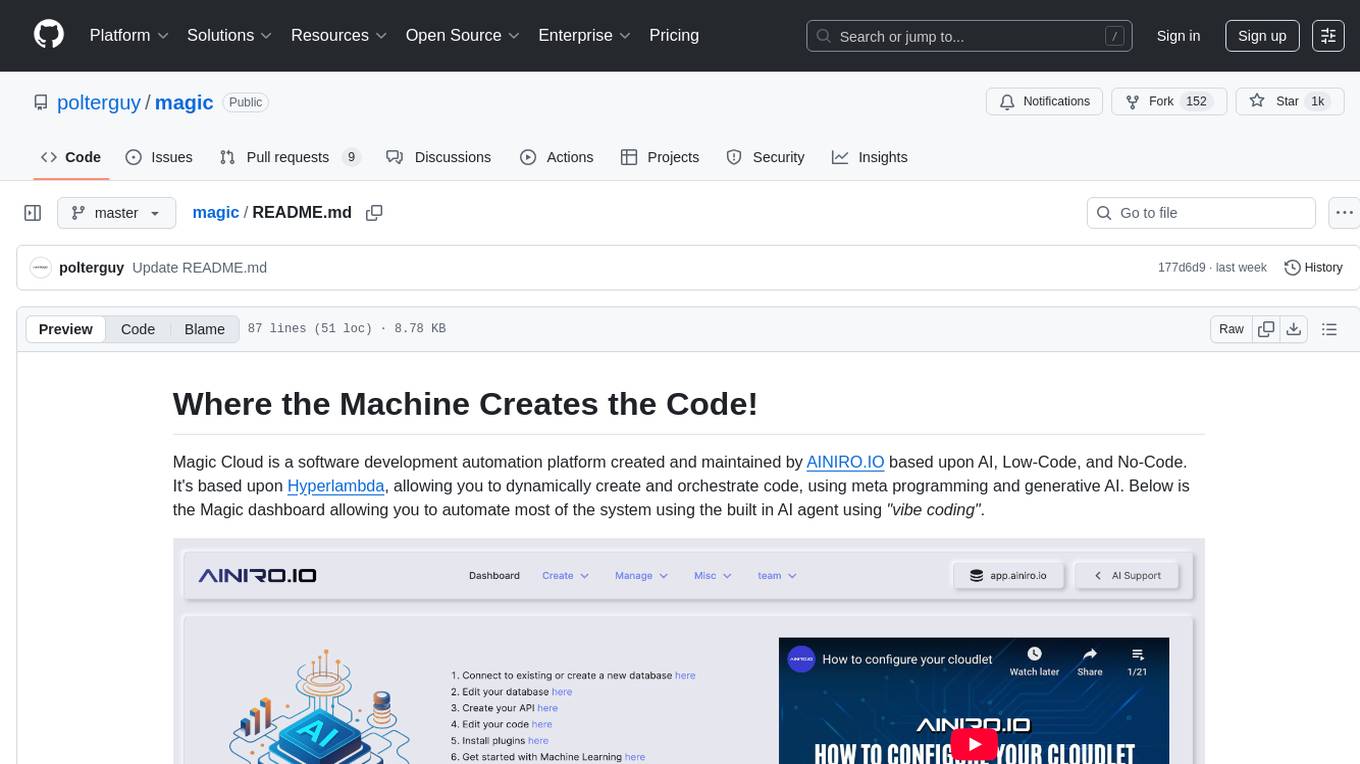
magic
Magic Cloud is a software development automation platform based on AI, Low-Code, and No-Code. It allows dynamic code creation and orchestration using Hyperlambda, generative AI, and meta programming. The platform includes features like CRUD generation, No-Code AI, Hyperlambda programming language, AI agents creation, and various components for software development. Magic is suitable for backend development, AI-related tasks, and creating AI chatbots. It offers high-level programming capabilities, productivity gains, and reduced technical debt.
20 - OpenAI Gpts
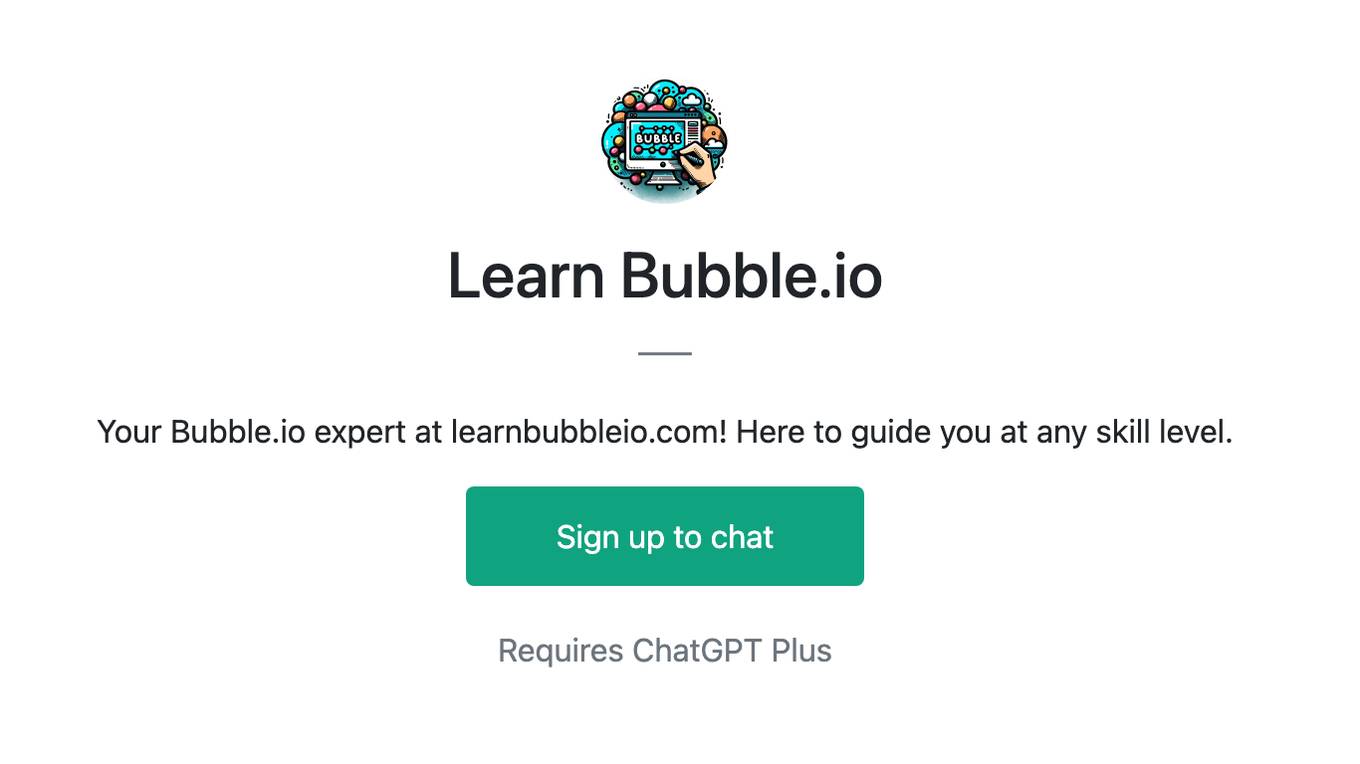
Learn Bubble.io
Your Bubble.io expert at learnbubbleio.com! Here to guide you at any skill level.
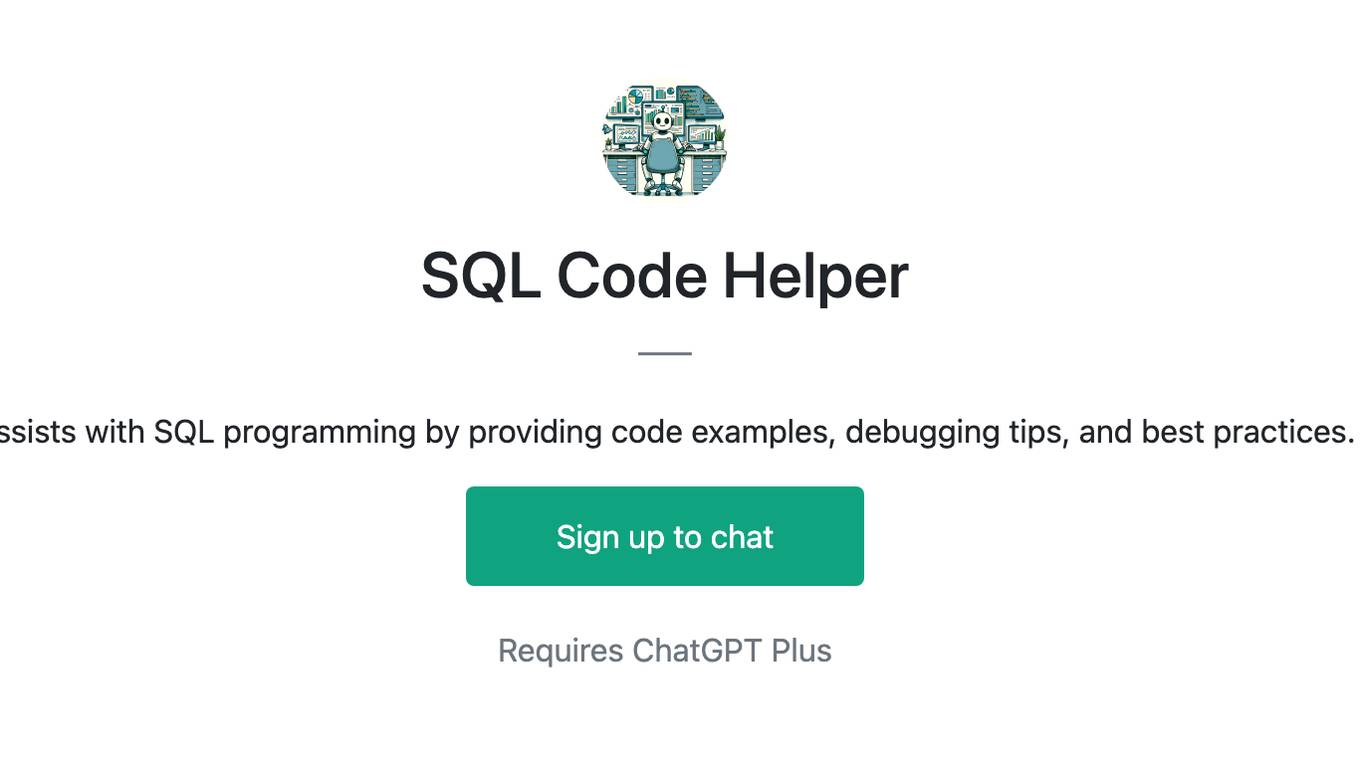
SQL Code Helper
Assists with SQL programming by providing code examples, debugging tips, and best practices.
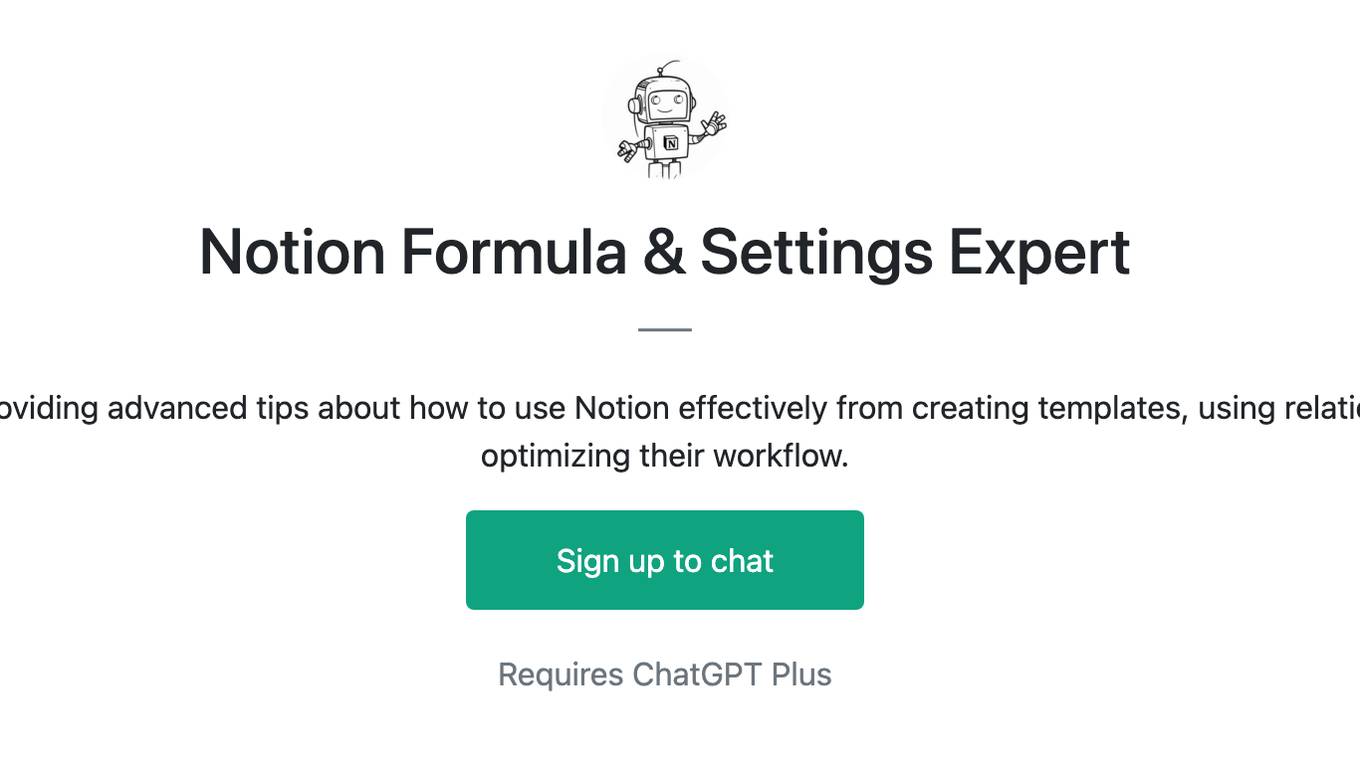
Notion Formula & Settings Expert
A Notion expert that can help the user by providing advanced tips about how to use Notion effectively from creating templates, using relational databases, writing Notion formulas or optimizing their workflow.
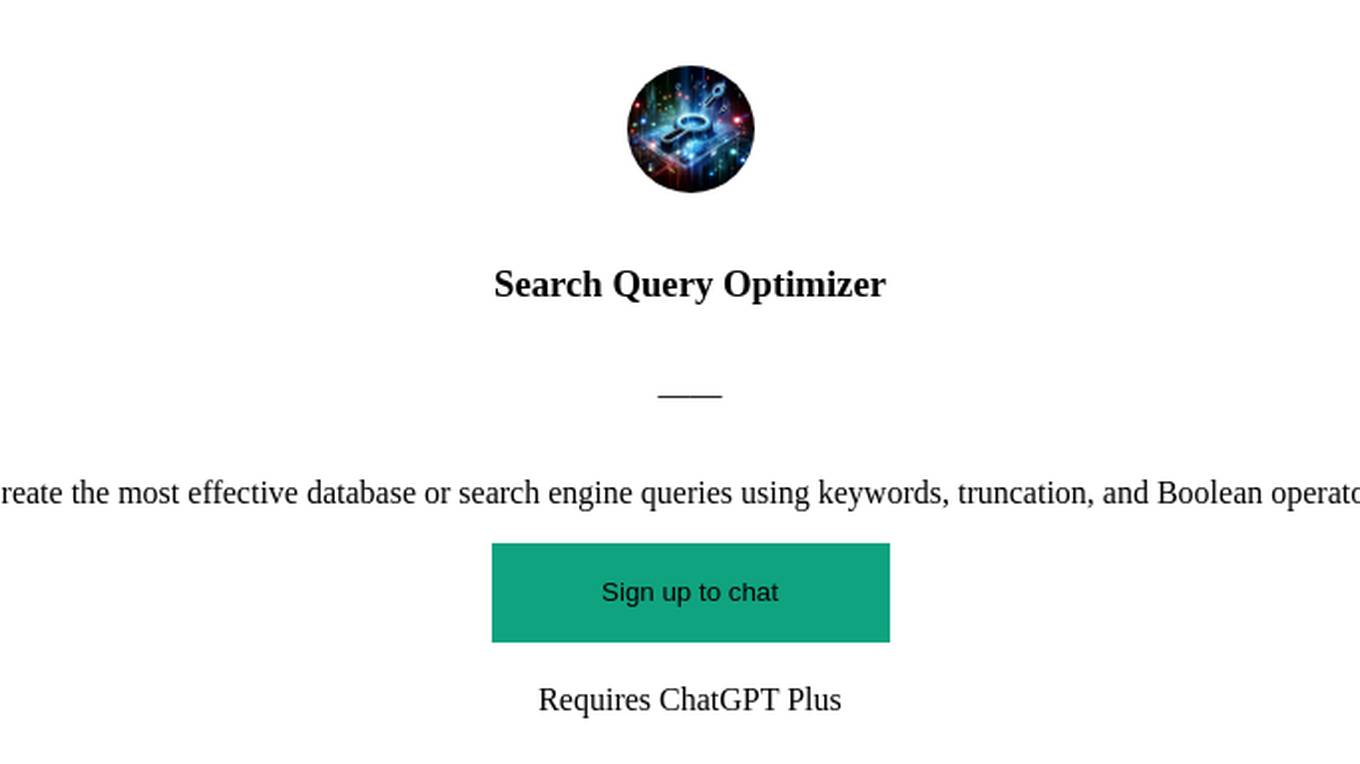
Search Query Optimizer
Create the most effective database or search engine queries using keywords, truncation, and Boolean operators!
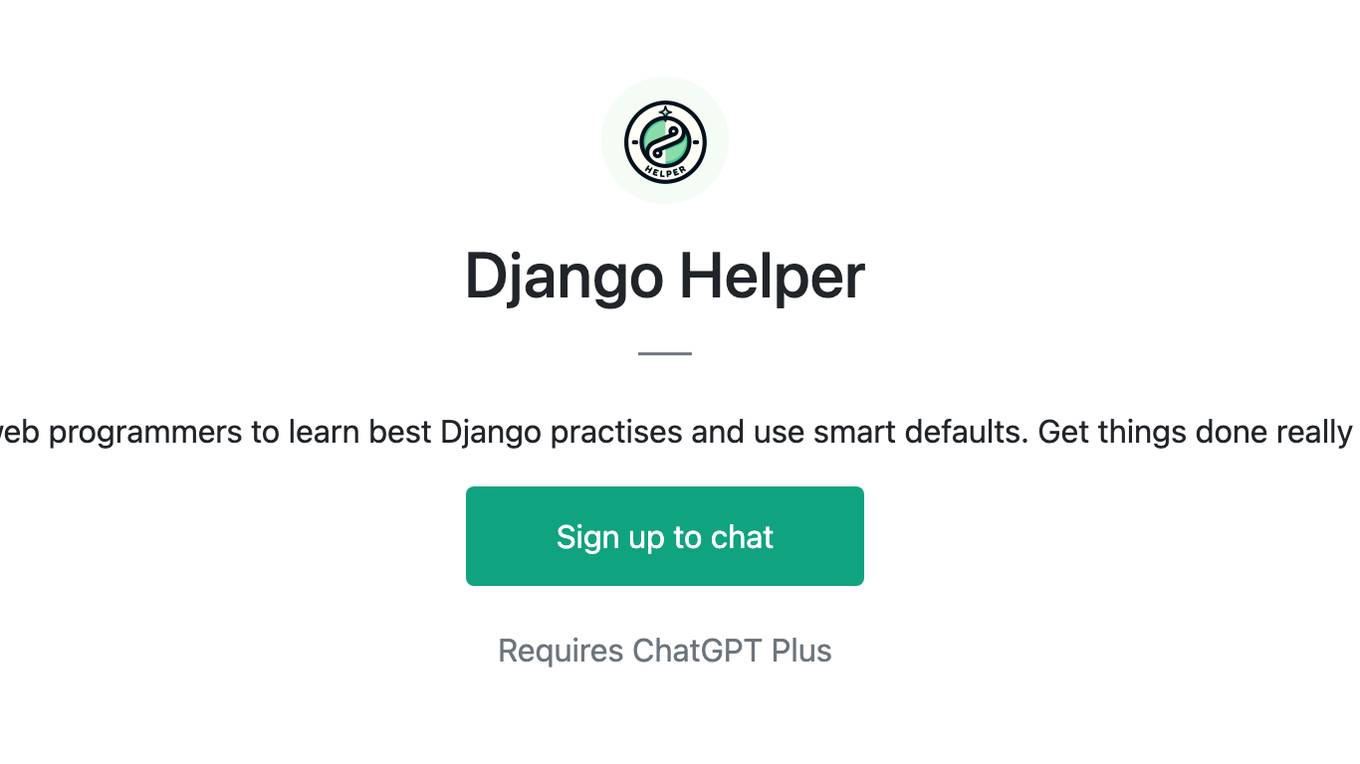
Django Helper
Help web programmers to learn best Django practises and use smart defaults. Get things done really fast!

Flask Expert Assistant
This GPT is a specialized assistant for Flask, the popular web framework in Python. It is designed to help both beginners and experienced developers with Flask-related queries, ranging from basic setup and routing to advanced features like database integration and application scaling.
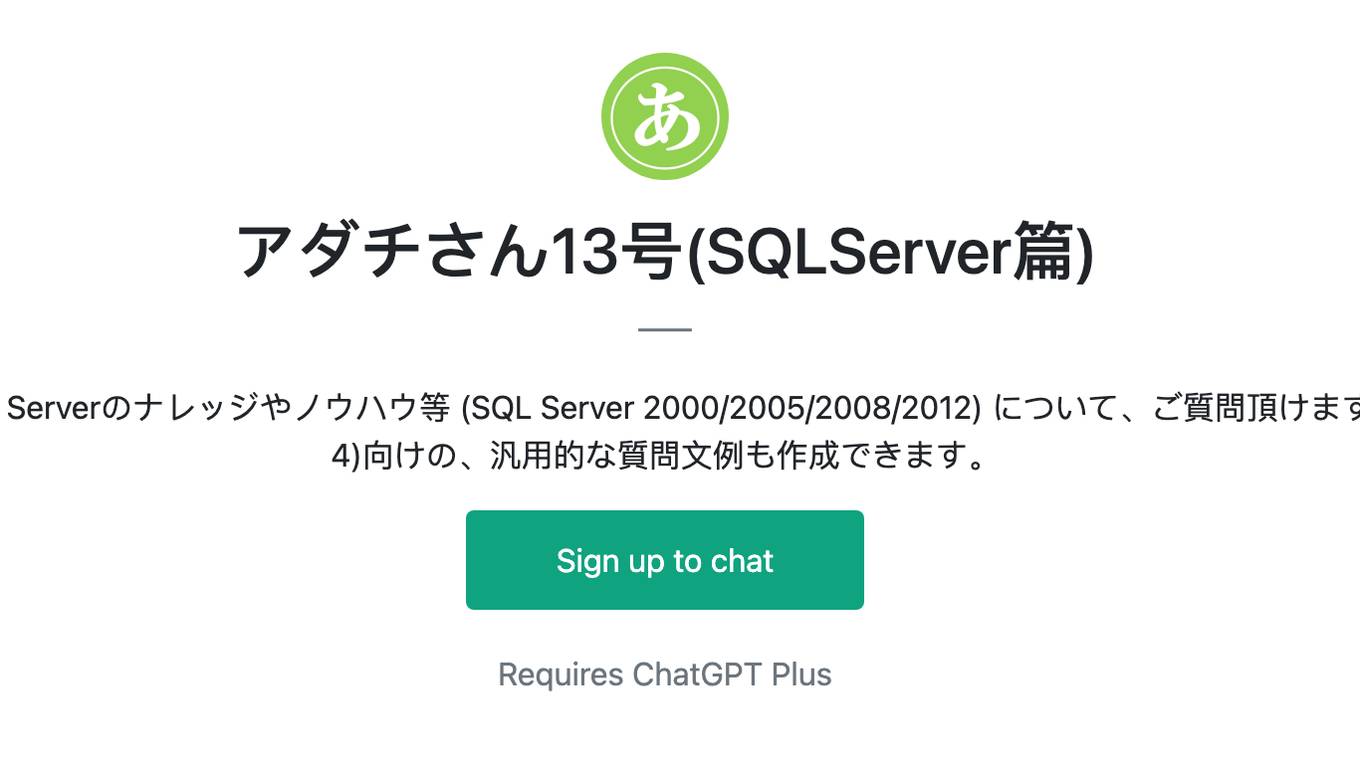
アダチさん13号(SQLServer篇)
安達孝一さんがSE時代に蓄積してきた、SQL Serverのナレッジやノウハウ等 (SQL Server 2000/2005/2008/2012) について、ご質問頂けます。また、対話内容を基に、ChatGPT(GPT-4)向けの、汎用的な質問文例も作成できます。
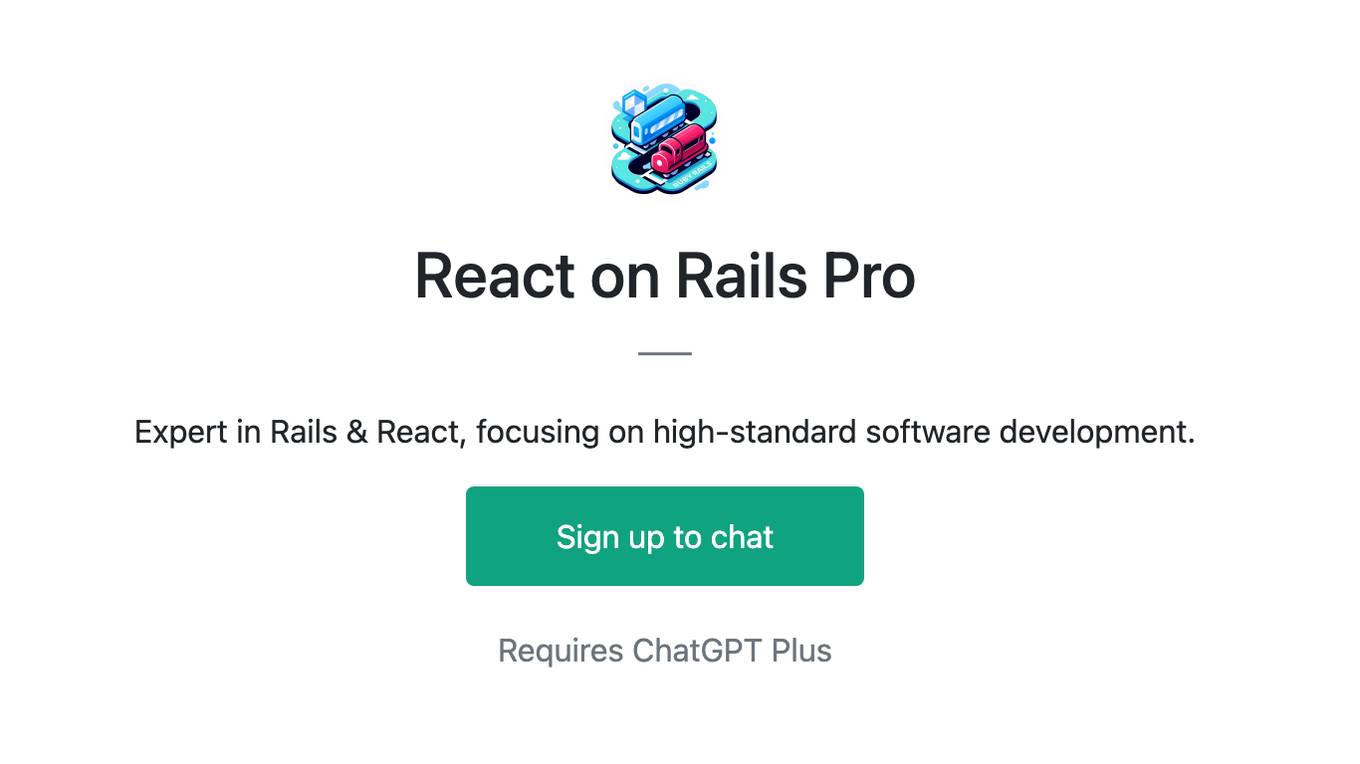
React on Rails Pro
Expert in Rails & React, focusing on high-standard software development.
